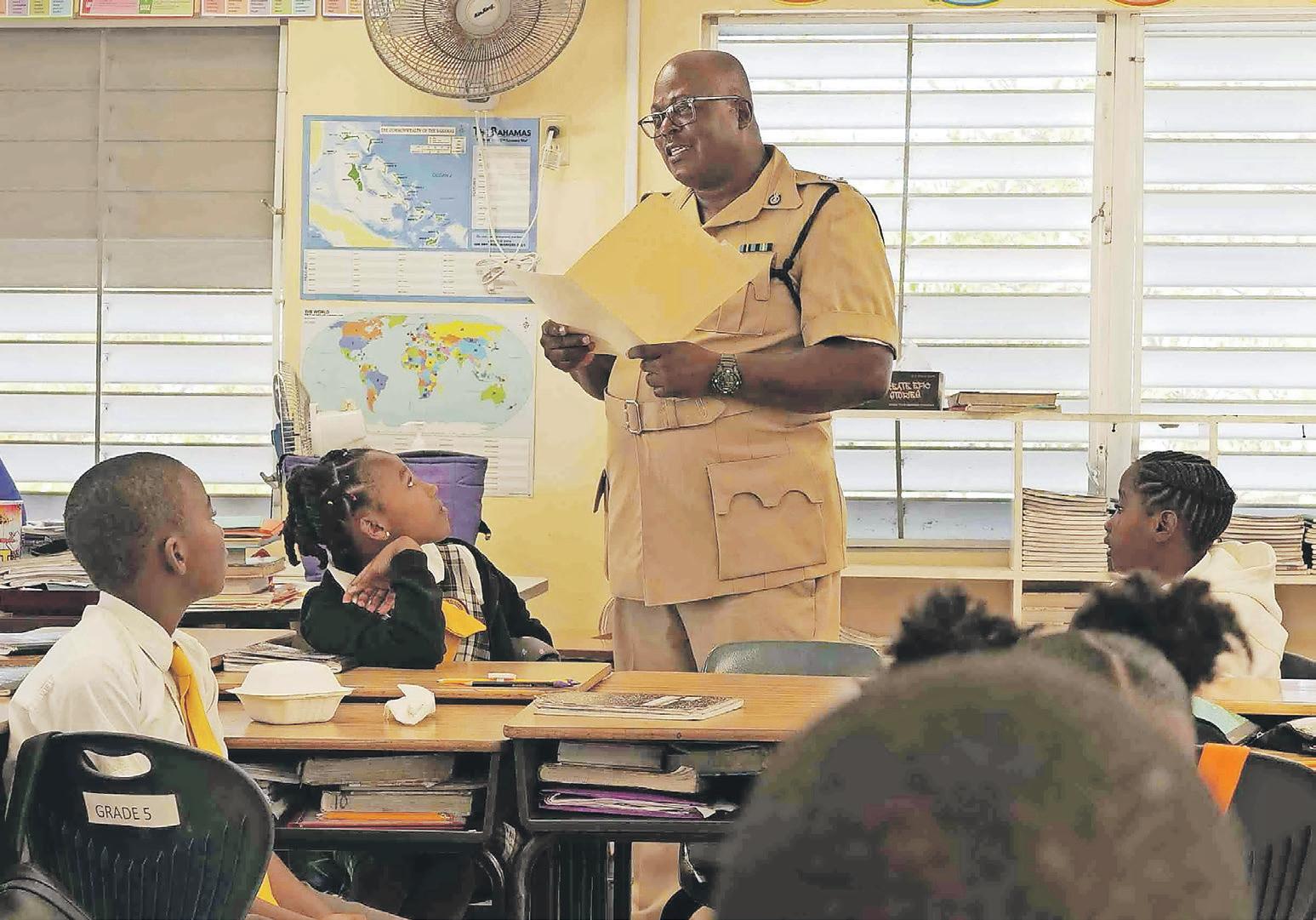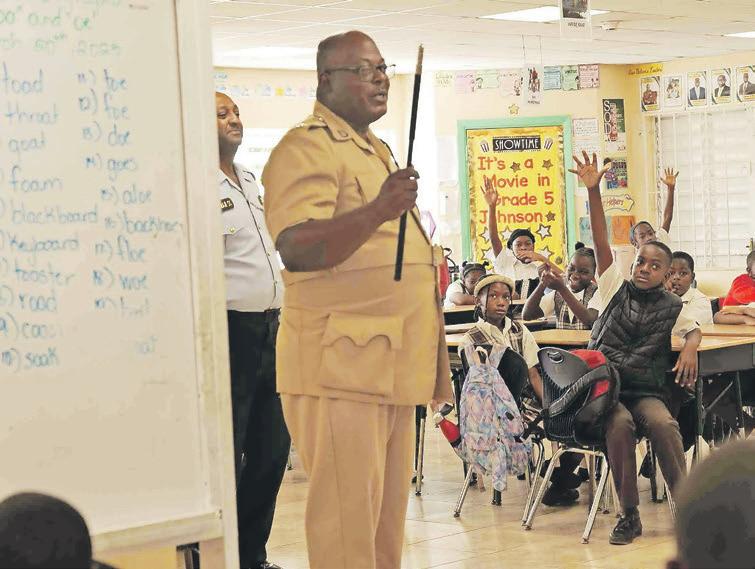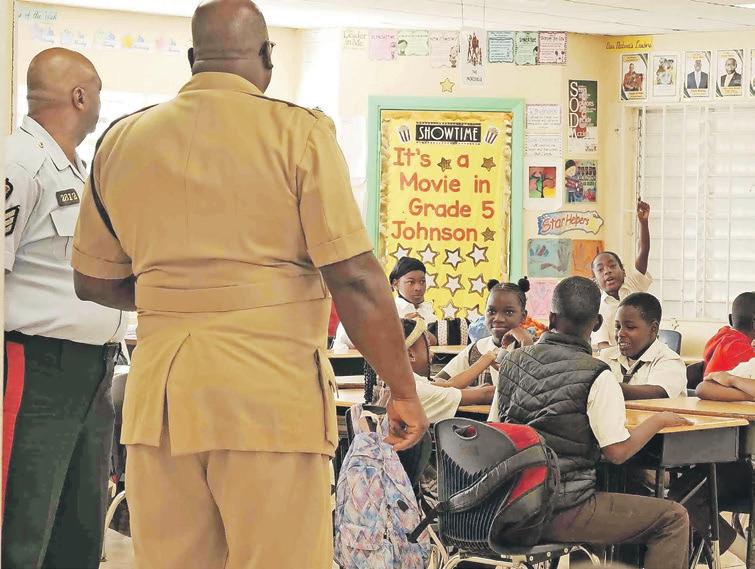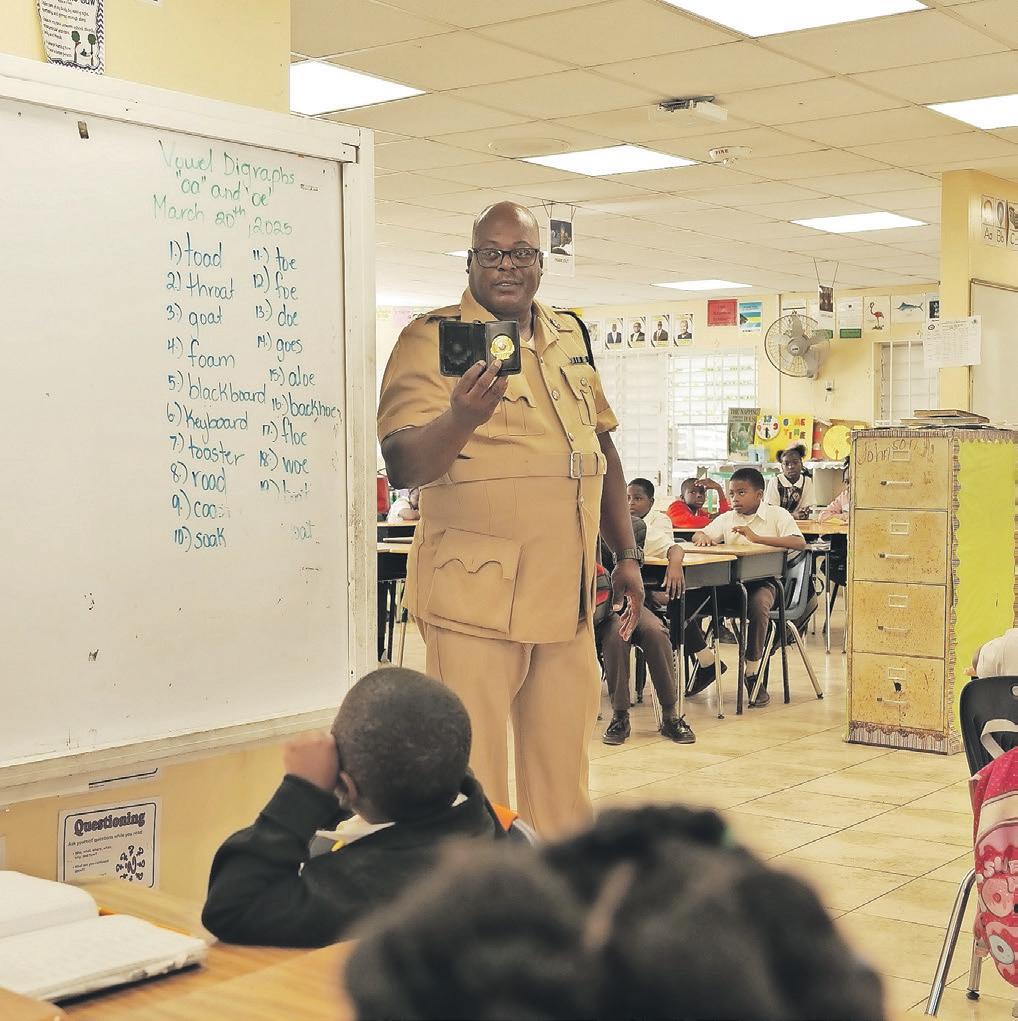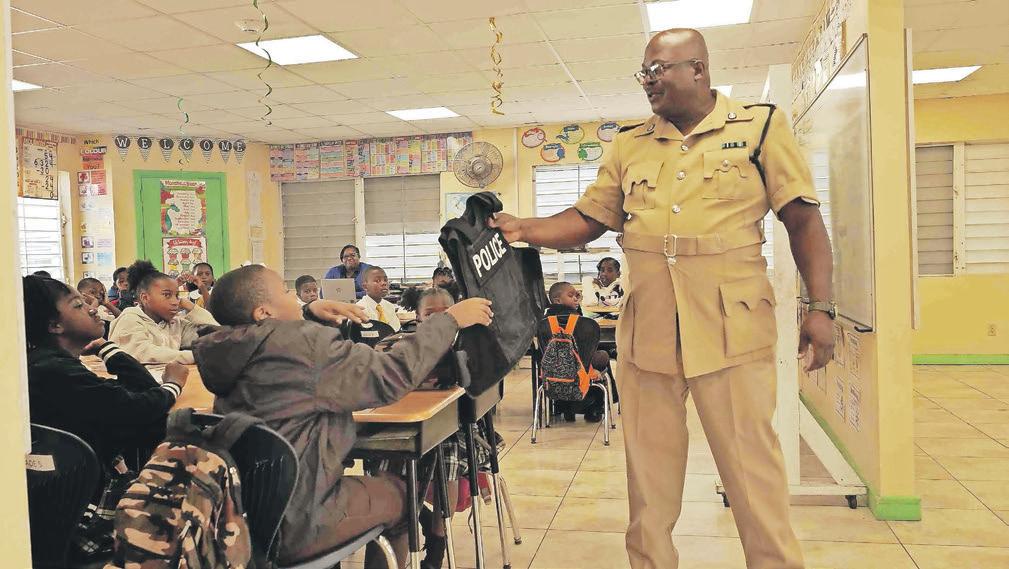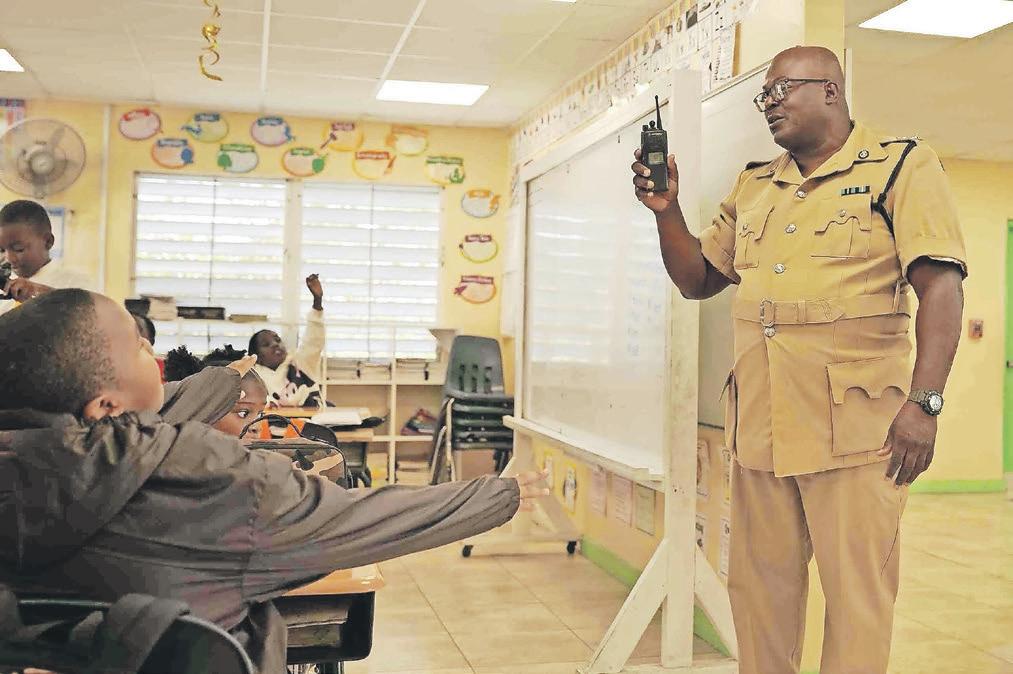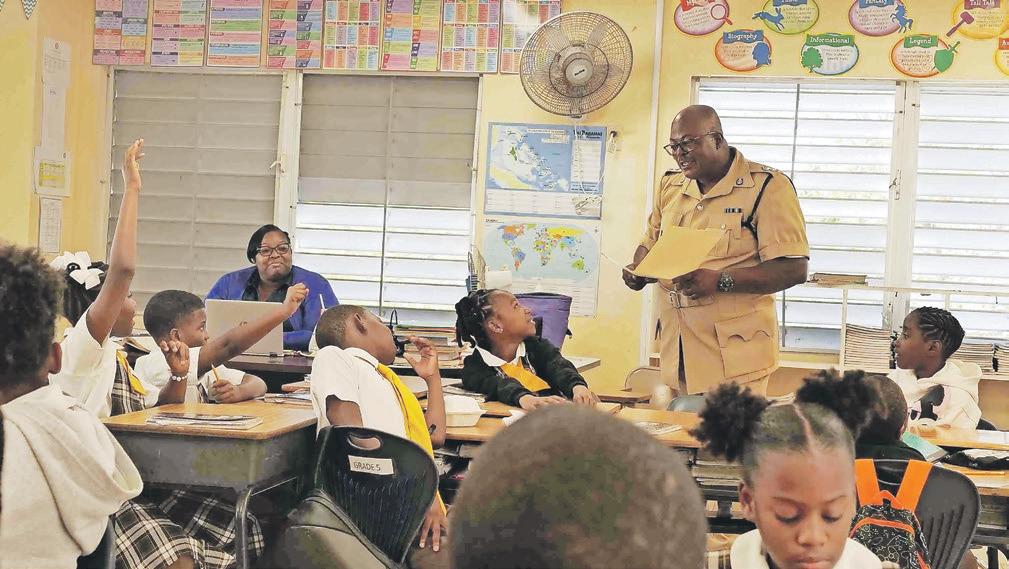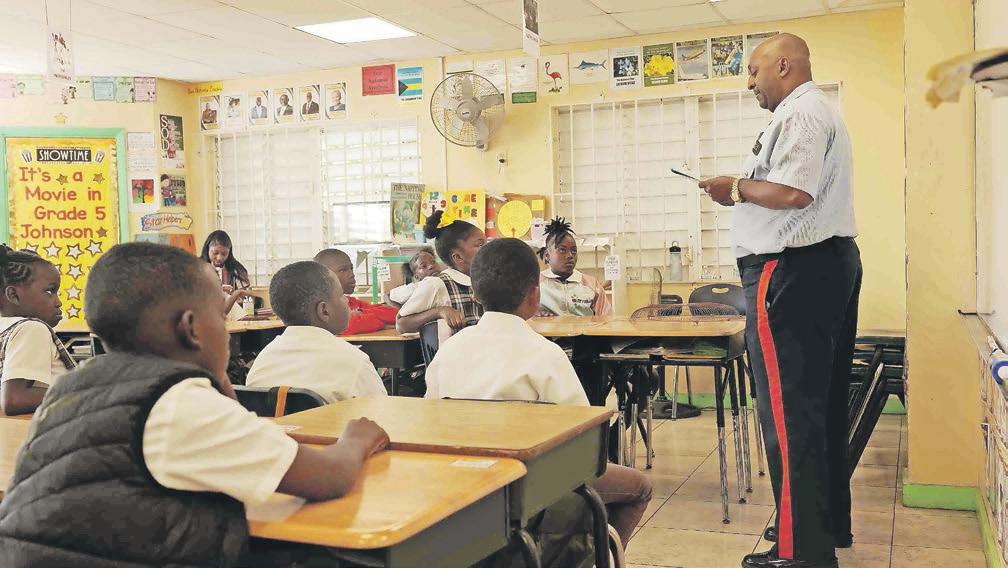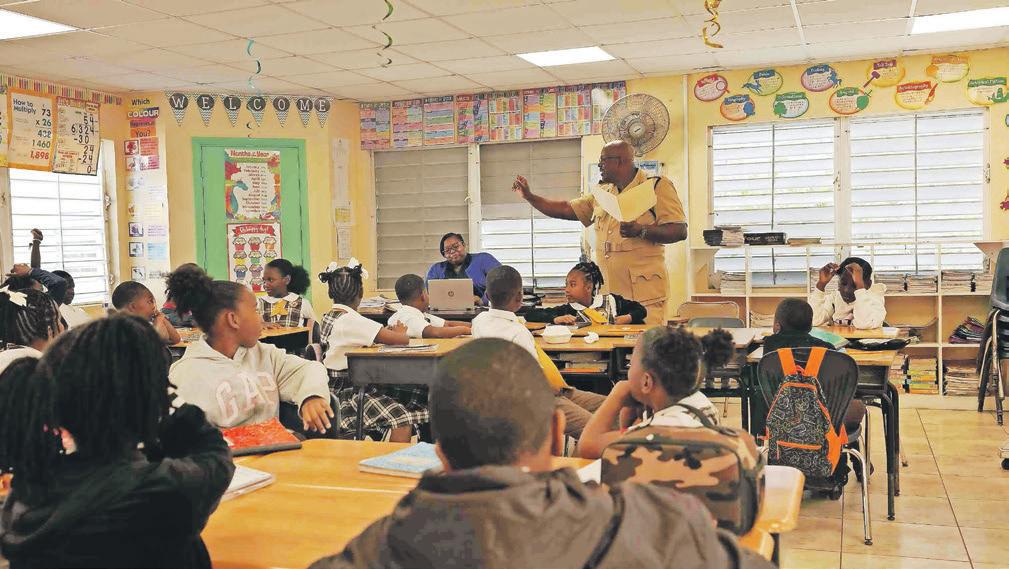














BY LEANDRA ROLLE Tribune Chief Reporter lrolle@tribunemedia.net
NATIONAL Security Minister Wayne Munroe
said acting Parliamentary Commissioner Arthur Taylor requested reassignment to another government agency, insisting that no one from his ministry directed his removal.
Mr Munroe, who has ministerial responsibility for the department, said he was informed that Mr Taylor sought the transfer through the Office of the Prime Minister after applying for vacation leave. He said he only learned of the matter after returning to the country recently.
“I never sought Mr Taylor’s removal,” he said, adding that he could not say
Police ‘still investigating’ held money one year later
By KEILE CAMPBELL Tribune Staff Reporter
kcampbell@tribunemedia.net

“My husband says he doesn’t have the energy to fight the police because he’s already down, already in too much pain, and cannot stand up long. He can’t do nothing,” said Mrs Deveaux, a naturalised Bahamian originally from
ALMOST a year after alleging that police officers took $9,000 from their Marathon Estates home during what they claim was a mistaken search, Aynalel and Marvin Deveaux are still without answers — leaving Marvin, already battling severe health issues, losing hope.

DENISE MAYCOCK Tribune Freeport Reporter dmaycock@tribunemedia.net
WITH over 50 power poles destroyed by massive bushfires that threatened many properties across
By
EARYEL BOWLEG Tribune Staff Reporter ebowleg@tribunemedia.net
FREE National Movement leader Michael Pintard welcomed Dame Janet Bostwick’s call for the FNM to unite to defeat the Progressive Liberal Party (PLP) in the
East Grand Bahama, Free National Movement members of Parliament are calling for additional firefighting resources and manpower in Grand Bahama.
While speaking in the
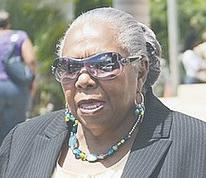
House of Assembly on Wednesday, FNM Leader Michael Pintard and East Grand Bahama MP Kwasi Thompson highlighted the terrifying bushfire incidents
By PAVEL BAILEY
Staff Reporter
THE Court of Appeal has ordered a retrial for a man previously
“We



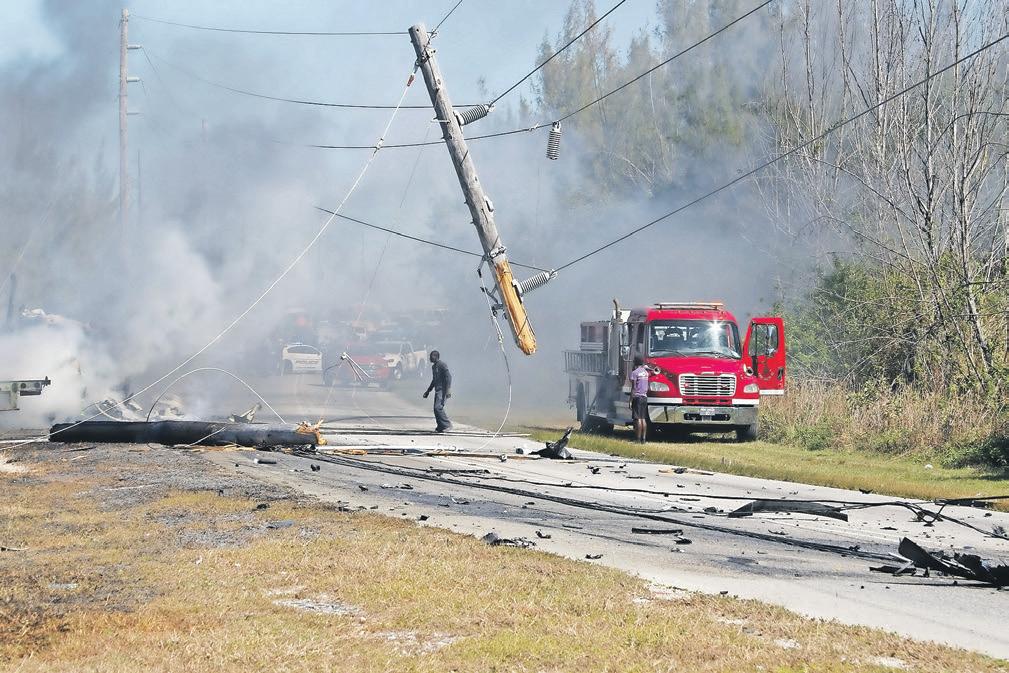
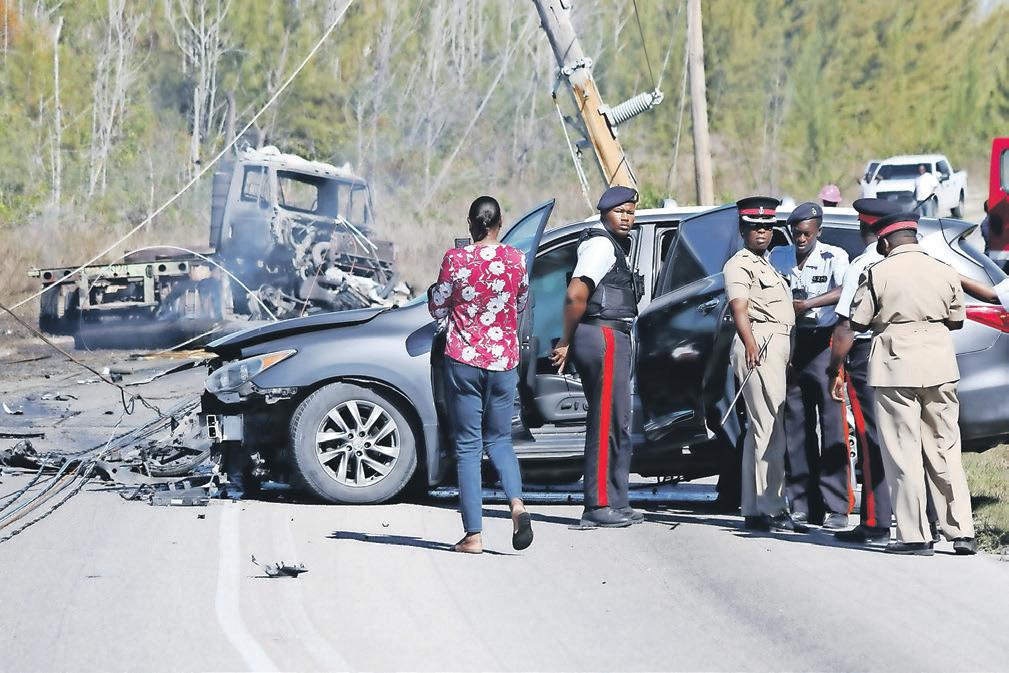
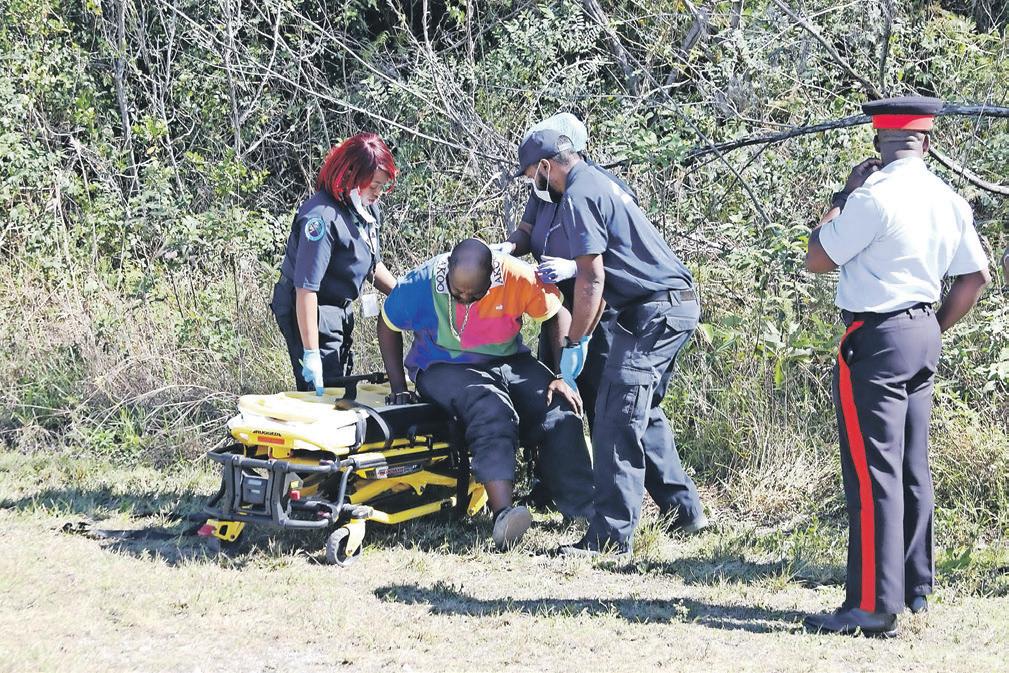


that they and residents have experienced in Grand Bahama.
“Today, Family Island communities continue to struggle with the scourge of bushfires,” Mr Pintard said.
“The hardship we face is in being able to manage or put out these fires.”
“We would have seen in Grand Bahama over the course of the last several days a number of our residents who have been struggling to save their homes.”
Mr Pintard said parliamentarians who were in Grand Bahama at the time, including the MP for East Grand Bahama and the MP for Central Grand Bahama, joined residents in wetting their properties and assisting firefighters in saving homes that were being threatened on Monday and Tuesday.
The lack of firefighting resources in Grand Bahama was raised by concerned residents and members of the FNM over a month ago after it was discovered that none of the five fire trucks at the Fire Department was operational. Officials have since said the situation has changed.
During his contribution to the House, Mr Thompson detailed the harrowing ordeal and extent of the damage he and many residents experienced on Monday and Tuesday while battling flames, including fireballs reaching 20 feet high.
The Grand Bahama Power Company lost 53 poles that were damaged due to the fire, which caused power outages in several of the affected subdivisions in Midshipman, Churchill, Acardia, and Fortune Point.
“It was painfully clear that because of the season
and because of the intense wind, we need to have additional fire resources in Grand Bahama,” he said.
“It is without question. We must have additional fire resources in Grand Bahama.”
“We fail, they fail. All of us have failed in terms of assisting and ensuring that there have been sufficient operational resources. We all must take responsibility for that failure.
“I am sure moving forward there are going to be additional fires, additional wind, and we must have those additional resources, additional fire trucks, and manpower. We must have that additional manpower on the ground to assist in fires.”
Mr Thompson emphasised the need to organise a volunteer firefighting programme, using water tanker trucks from industrial sectors, which played a major role in assisting with extinguishing the fires.
“There were two in particular on the ground, and they were able to get into areas the big fire trucks could not reach to assist residents. And when the big fire trucks were fighting elsewhere, they were able to assist,” he said.
“We should organise those situations so that if we have, God forbid, another day like the day before yesterday, we have volunteer firefighters who can use these tanker trucks to assist in making sure they supplement what is happening on the ground.”
“We must do a better job in advising residents on what should be done and have the Fire Department provide necessary information for them. A lot of what took place was out of panic and sheer fear. Understandable fear because if you see a 20-foot fireball right beside your gate, you are
going to be fearful about what should happen.”
Mr Thompson said residents should know to create at least a firebreak by clearing away brush near their fences, which could provide some additional protection to keep the fire away from their properties.
“I saw in one area in Midshipman where the fire walked from the bush, travelled along the grass, and came right up to the person’s house,” he recalled.
Mr Thompson noted that there were two fire trucks — one brought in from New Providence and one that was already in Grand Bahama and repaired — along with the airport truck, which was in full-time operation on Monday and Tuesday.
He said the airport truck, which is designated for airport emergencies, had to move back and forth between fires and the airport.
“I asked the airport firefighter about the airport, and he said the airport is covered, and I just trust what he said. But that airport truck was on the ground full-time fighting fires,” Mr Thompson said.
The damaged and downed power lines caused power outages, disrupting water supply in the areas affected by the fires.
Mr Thompson said some residents had filled buckets of water to help their homes.
“This is not just a building, it is your family, all those things that make your family. This is your entire investment that people have been fighting to protect,” he said.
He also reported that the plastic water pipes installed at unoccupied properties by the Grand Bahama Utility Company had melted and caused water to leak in the Churchill Road area.
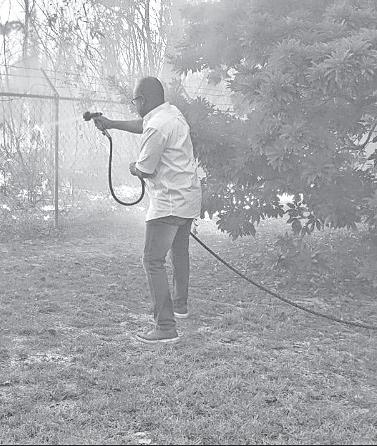
in the East Beach
area on Tuesday, Mr Thompson said some people were still without power and water, including an elderly lady who had flames at her back gate.
“We had to get a generator to start the power so she could get some water. And we got the power and water on so we were able to wet the property line to protect it from coming any further,” he explained.
Mr Thompson indicated that a plan was put together by Mr Pintard and the MP for Marco City, supported by Shanendon Cartwright, MP for St Barnabas, which focuses on ensuring that there are necessary fire resources in Grand Bahama and throughout the Family Islands.
“What took place for two days, I understand how in California you
could have lost so many homes,” he said, adding that the fire moved very quickly, especially in dry and windy conditions.
“I want to commend the residents and let them know we support them and stand shoulder to shoulder with them. We support the bill and what is being proposed, but we need and must have the necessary resources to fight these fires in Grand Bahama.”
Ethiopia. “I am the only one that can focus on my husband, you know? Everybody telling me it’s still an investigation, it’s still an investigation. I don’t know who to speak to.”
When The Tribune reached out to police for an update, a press liaison officer could not provide a definitive response, saying only that the matter was
still under investigation. Mrs Deveaux said she and her husband had been saving the money for a medical trip to Turkey. The cash was reportedly locked in a bedroom, but allegedly went missing after officers searched their home.
In May 2023, The Tribune first reported the couple’s allegations. The Deveauxs filed a complaint with the Wulff Road Police Station and later at police
headquarters when they realised the money was gone. Since then, Mrs Deveaux, the sole breadwinner in her household, has struggled to pay legal fees while managing her husband’s medical expenses. Mr Deveaux has been on dialysis for the past 20 years, and his condition has not improved. She fears that even if they are eventually compensated, the money will

be consumed by legal costs and mounting bills.
“Sometimes I’m tired and decide to drop him in the morning and pick him up in the evening because between my job and him, sometimes I hardly take my lunchtime — I gotta go take care of him,” she said. “No one is taking care of him in the house while I’m gone.”
The ongoing ordeal has taken a heavy toll. Mrs Deveaux missed her sister’s
funeral in Ethiopia because she was dealing with the missing money and could not afford the cost of travel.
“It costs too much money,” she said. “And the police mix-up is my own situation, my life, everything. It’s broken up for me and my life in this country.”
The experience has soured her view of life as a naturalised Bahamian.
“This country is very bad,” she said. “The police
take all of my money and you know, this was a little bit of change to take care of my husband. I don’t know. Now, I got to fight for me. Only I am looking for someone to help me and the lawyer.”
Last year, then-Deputy Commissioner of Police Leamond Delevaux said the matter was under investigation. He retired from the police force without giving an update on the matter.

By LEANDRA ROLLE Tribune Chief Reporter lrolle@tribunemedia.net
AS parliamentarians debated and passed an amendment to the Defence Act, which would allow marines to serve until 60 without limitation, former Prime Minister Dr Hubert Minnis expressed concern that the Davis administration might abuse the provision, citing its practice on rehiring retirees.
The amendment would repeal and replace Section 18 of the Defence Act, allowing marines to serve until 60 without limitation.
The current Defence Act allows retirement after 30 years of service or at the age of 55, but the introduction of a 40-year service limit in earlier amendments caused confusion and affected career expectations.
Under the Defence (Amendment) Bill 2025, marines who complete 30 years of service or another prescribed period may reenlist with approval from the competent authority for further terms of service until reaching 60.
Retirees wishing to continue serving would have six months from retirement to reapply.
Yesterday, National Security Minister Wayne Munroe provided numerous examples of marines who joined the force at different times and were forced to retire at varying ages. He said the amendment addresses this issue and resolves inconsistencies regarding the retirement age.
He said the amendment was also an incremental
step towards addressing attrition.
The bill received unanimous support but sparked concerns from opposition members.
Dr Minnis said that while the amendment seems straightforward, questions must be asked about the potential abuse or misuse of powers under this amendment, given the government’s policy of rehiring retirees.
He questioned what would happen to young officers seeking advancement if the Davis-led administration brought back a large number of retired officers.
“What this bill also allows for is the rehiring of defence force officers who have already met existing retirement criteria,” he said. “They will be allowed to come back and serve until they are 60. An administration more committed to good governance instead of politicising our national security institutions would not abuse such powers.”
“It would only bring back a few necessary officers who may have retired but still have a crucial role to play until age 60. Madame Speaker, can we say that about this administration?”
Dr Minnis said he feared the Davis administration would abuse the provision, but Mr Munroe dismissed his concerns.
He pointed out that the legislation defines “competent authority” not as a member of the political directorate but as the commander of the RBDF unless delegated to another officer.
“As much as the other
side thinks that the Minister of National Security commands the police and commands the defence force, if they would read the legislation and the constitution, competent authority here means the commander of the defence force,” he said.
FNM Leader Michael Pintard said the party supports allowing officers to serve longer than 60 to help protect the nation’s borders and fisheries.
His concern, however, was with the alleged treatment of law enforcement officers. He questioned how the government could claim to be serious about national security when it is not doing everything necessary to improve the quality of life for all officers.
He reiterated concerns about unpaid pension contributions, police reserves being owed salaries, officers’ families no longer having health insurance and the government evicting officers from their homes with no proper plan to support them.
The opposition leader urged the government to move urgently to address these issues and said if not, their failures would be corrected if his party assumes office.
Mr Munroe pointed to the inconsistency in the opposition members’ statements, saying: “It seems very schizophrenic.”
“On one hand, they say we are to be cursed for bringing back persons on pension and paying them, but then we heard this morning that we should let them serve even beyond 60,” he said.
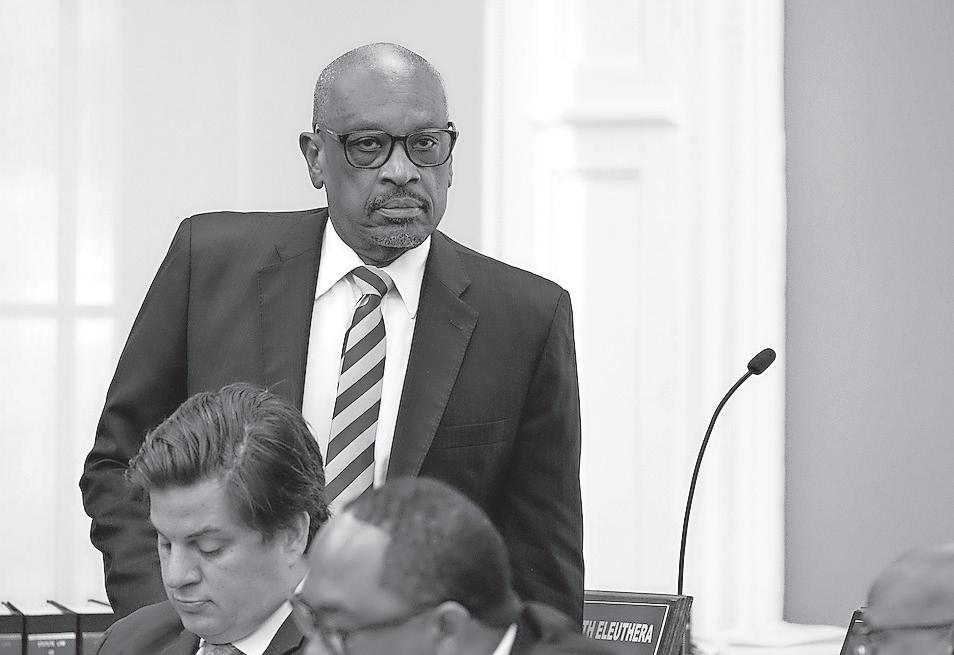
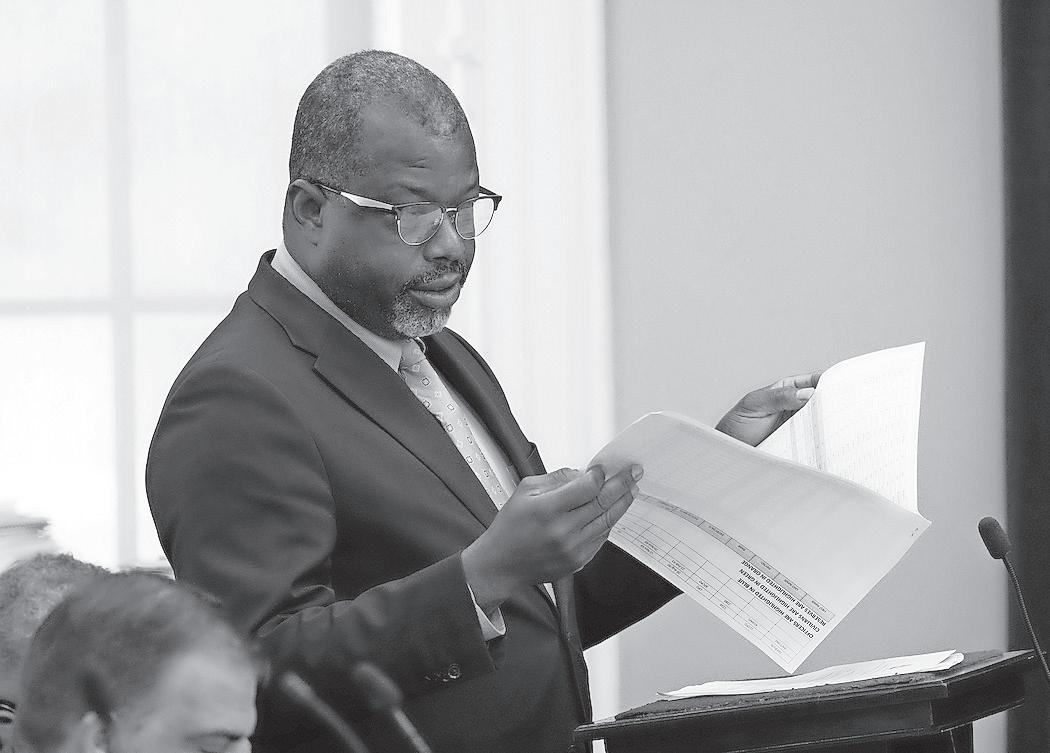
AS Gambling Addiction Awareness Month begins, officials are increasing efforts to address gambling and substance abuse among high school students.
Paulette Dean, chairperson of the gambling addiction awareness programme, warned that minors are engaging in risky behaviours, including drinking and gambling.
Abaco, and Exuma revealed that gambling is a common pastime in those islands. This year, officials plan to expand their efforts to Grand Bahama and Long Island.
representative Kenny Mackey. “But there are some who don’t know their limits. For us, it’s important to invest in the community and build a safety net to support them.”
“Young people are throwing dice. A lot of them are drinking,” she said. “Statistics show that about 60 percent of those who use alcohol also gamble. Even if it’s not happening in school, students of school age are involved. That’s the bulk of the problem — alcohol, marijuana, and gambling.”
She added that many students also become addicted to video gaming, compounding their struggles with other substances and gambling. To counter these trends, officials plan to visit

schools across the country, starting as early as junior high, given that many students have already begun using alcohol and other substances by the time they reach senior high school.
A previous outreach campaign in Eleuthera,
Meanwhile, Island Luck has donated $30,000 to Sandilands Rehabilitation Centre to support gambling addiction treatment. “For 99 percent of our customers, gambling is a form of entertainment they enjoy within their limits,” said Island Luck Cares
Officials previously reported a rise in gambling disorders during the COVID-19 pandemic, with women being most affected. Studies have also shown that half of those with a gambling disorder struggle with another condition.

from page one
put their teeth into it and say ‘this is what I am standing for and this is what I’m fighting for.”
Mr Pintard responded yesterday: “Why would it upset me? It’s a wonderful thing to continue to call for sister and brethren to dwell together in unity. That’s a wonderful thing. We love Dame Bostwick, and we take her advice, and so no, not at all. It doesn’t upset me.”
Mr Pintard downplayed concerns about a lack of unity within the party.
“I understand the nature of politics, and so at the end of the day, we are strong as an organisation,” he said. “We will continue to improve as an organisation, and we fully expect to be the government this year if the election is called, or next year.”
He acknowledged that discontent with the PLP does not automatically translate into support for the FNM, adding that Bahamians are frustrated with traditional politics and want change.
Mr Pintard said the party remains on track to announce candidates by the first quarter of 2025, emphasising that the FNM’s leadership will look different in the next election.
He said the party is moving away from the traditional mould of candidates like doctors and lawyers, instead fielding individuals with backgrounds in the orange economy, agriculture, and community activism.
He stressed that these candidates would not be tied to the usual power networks but would include people from Over-the-Hill and the Family Islands, bringing a fresh approach to national politics.
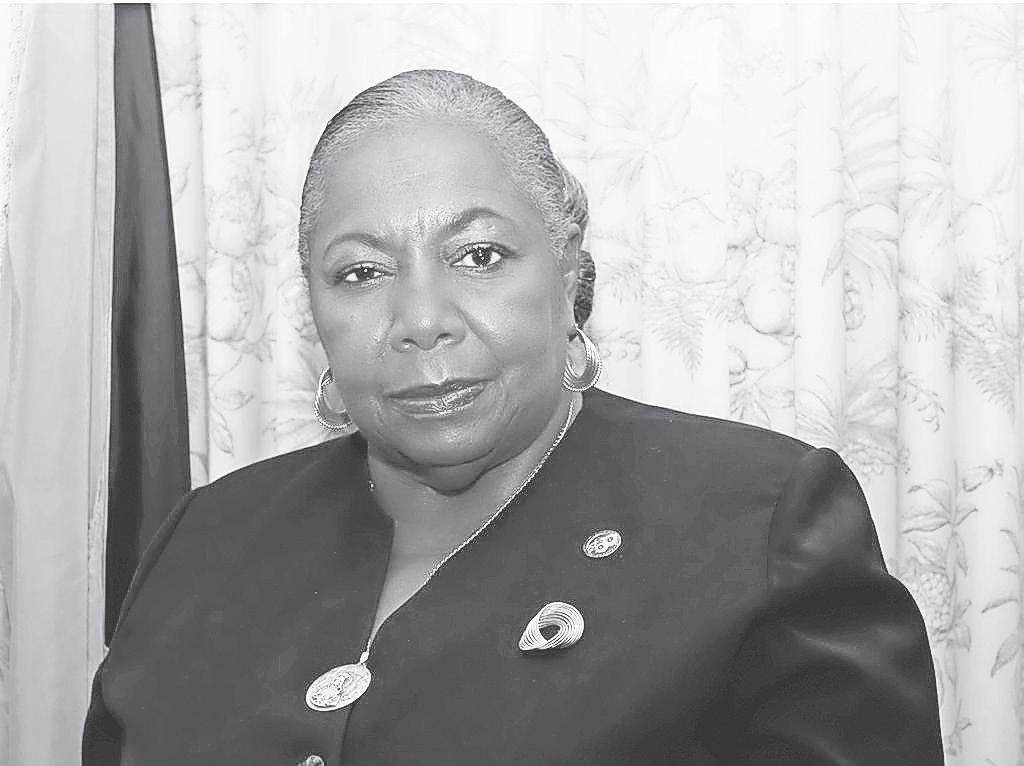
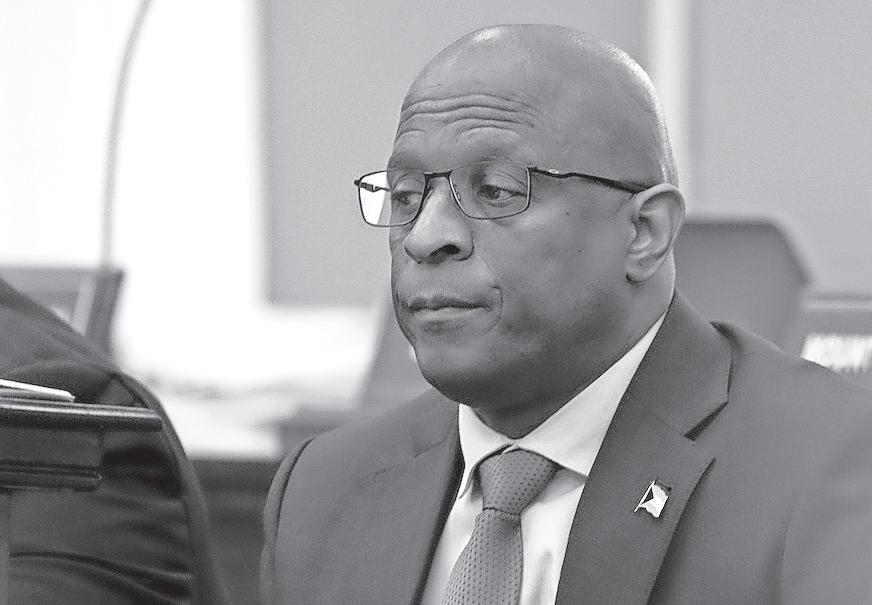
By LYNAIRE MUNNINGS
Tribune Staff Reporter lmunnings@tribunemedia.net
MINISTER of State for the Environment
Zane Lightbourne cautioned against spreading panic over the recent SpaceX Starship explosion, urging reliance on expert assessments rather than speculation.
His warning came during a heated House of Assembly exchange after Free National Movement (FNM) Deputy Leader Shanendon Cartwright accused the government of failing to follow proper procedures for SpaceX launches. The Starship rocket exploded mid-flight on 6 March, lighting up the Bahamian sky and leaving debris scattered on several beaches, including Ragged Island.
Ragged Island resident Craig Maycock discovered rocket fragments, describing them as having a strange smell. He collected several pieces, including steel and tile blocks, some with serial numbers.
Mr Lightbourne pushed back against efforts to link the government’s agreement on SpaceX’s Falcon 9 booster landings with the separate issue of Starship’s failed launch.
“When we reach the sensitivity of especially matters of science, it’s important, like medical science and environmental science, to get the information from the expert and be very careful about inciting any type of panic,” he said.
Mr Cartwright questioned why no Environmental Impact Assessment (EIA) was conducted before allowing SpaceX activity, arguing the government should have taken more precautions.
“What we are talking about is a proper
government agency, and a proper governmental process was not followed as far as we are concerned,” he said. “A fisherman doesn’t call his fish stink.”
However, Starship’s launch and explosion occurred in Texas, outside Bahamian jurisdiction, raising questions about whether an EIA would have been possible for such an event. National Security Minister Wayne Munroe dismissed Cartwright’s criticism, pointing out that Bahamian rocket scientist Aisha Bowe had advised the government on the programme’s safety. “He made it worse. He made it much worse,” Mr Munroe said. “Because they weren’t paying attention to what was said because the person who did the evaluation before and after are also young Bahamians.
Young black Bahamians who are educated and they say they care about the youth.”
The government has since initiated independent environmental assessments to examine potential toxic contaminants, rocket fuel residues, and seabed disruption, with water and air quality samples being collected. Officials have promised to release a formal statement on the findings.
While The Bahamas has entered into an agreement allowing up to 20 Falcon 9 booster landings — each requiring a separate licence from the Civil Aviation Authority — those landings are distinct from the Starship programme, which remains in the testing phase under US Federal Aviation Administration (FAA) oversight.


NULLIUS ADDICTUS JURARE IN VERBA MAGISTRI
“Being Bound to Swear to The Dogmas of No Master”
LEON E. H. DUPUCH
Publisher/Editor 1903-1914
SIR ETIENNE DUPUCH, Kt., O.B.E., K.M., K.C.S.G., (Hon.) LL.D., D.Litt .
Publisher/Editor 1919-1972
Contributing Editor 1972-1991
RT HON EILEEN DUPUCH CARRON, C.M.G., M.S., B.A., LL.B.
Publisher/Editor 1972-
Published daily Monday to Friday
Shirley & Deveaux Streets, Nassau, Bahamas N3207
TELEPHONES
News & General Information
(242) 502-2350
Advertising Manager (242) 502-2394
Circulation Department (242) 502-2386
Nassau fax (242) 328-2398
Freeport, Grand Bahama (242)-352-6608
Freeport fax (242) 352-9348
WEBSITE, TWITTER & FACEBOOK
www.tribune242.com

@tribune242

WHEN Aynalel Deveaux came to The Tribune in May last year, she was desperate for someone to take action. She said that police officers came to the home of her and her husband Marvin and searched it – mistakenly, they believe.
But after the officers had left, they say that $9,000 locked in the bedroom had gone missing.
The couple duly filed a complaint, first with the Wulff Road Police Station, and then later at police headquarters.
The couple said they had been saving the money for a medical trip to Turkey. Mr Deveaux had health issues – and they have not improved.
The Tribune reported on that incident – but all this time later, there appears to be little progress.
Mrs Deveaux says the couple are still without answers. She said: “Everybody telling me it’s still an investigation, it’s still an investigation. I don’t know who to speak to.”
The Tribune also reached out to police for an update – but what did the press liaison officer say? It’s still under investigation…
This is far from the first time The Tribune has been told of complaints raised with the police that have gone unanswered.
In one case, there were allegations of police torturing three people and the complaint about such actions having gone unacted upon for more
than a year, only for the police to say that the complainants were out of time for their matter to be dealt with.
And in yesterday’s Tribune , we reported on claims from a Grand Bahama woman that police had seized tens of thousands of dollars from her six months ago, insisting she provide proof of origin before it is returned.
Complaints will arise in any organisation – particularly in one as large as the police and with such frequent direct conflict with members of the public.
Some of those complaints may be valid, some may not – but there needs to be a reasonable process that deals with those complaints as they arise.
That must be timely, the complainants must be kept informed of progress – or the lack thereof – and appropriate action must be taken at the final outcome.
People being left in limbo, not knowing what is happening, is unacceptable. That is especially the case when there are allegations that the complainants are victims of crime at the hands of the police.
Too often the current process looks as though it is not fit for purpose.
If the force wants to uphold its reputation in that regard, it could start by speaking to Mrs Deveaux – and addressing her concerns.
What must not happen is that time runs out on her complaint too.
EDITOR, The Tribune.
IN my Letters to the Editor I often use the phrase “see what ya lookin’ at” in the hope that we, the people, will become better critical thinkers to ‘see’ beyond the many layers of flowery speeches and empty promises that we encounter constantly from our politricksters. However, the health of our nation is a serious matter that demands serious consideration. It has come to my attention that apparently there are public patients who are teetering on the brink of losing their eyesight due to the backlog of patients waiting to undergo sight-saving eye surgery! Allegedly their surgery dates have been put on hold since last year and no alternate dates have been given. What is going on in our public hospital? Why are our people not receiving the medical attention they
require and deserve! This is unconscionable! We, the people, are sick of hearing politricksters talk about ‘easing the people’s burden’ if their uncaring actions and disdain show the complete opposite of their words! Where are their priorities?
We, the people, hear repeatedly about the health of our Treasury’s coffers, even though the budget report paints a completely different picture. Additionally, no mention or evidence of any budgeting restraints can be seen since the politricksters continue to spend with abandon and to their benefit, not ours, jetting here and there like there is not tomorrow. We, the people, have the right to question where our hard earned tax payers’ dollars are going if we can only see delegations of dozens of people at a time traveling half way around the world –for what?


EDITOR, The Tribune.
THIS past weekend, Free National Movement supporters had commemorated the life and times of Sir Cecil Wallace-Whitfield, the man who spearheaded the initial rebellion against Sir Lynden Pindling and the fledgling Progressive Liberal Party government in 1970.
While the final Pindling administration honoured the FNM founder with a knighthood in 1989, months before his demise in 1990 of cancer, the relationship between Sir Cecil and Sir Lynden was already beyond the point of restoration. The Dissident Eight members all lost their seats in the 1972 general election. Only 39.30 percent of those who voted supported the FNM. Fifty-nine percent voted PLP. The FNM won nine of the 38 seats. The PLP won 29.
If you look at the names of those elected under the FNM banner, names such as Mike Lightbourn, Errington Watkins, Noel Roberts, Norman Solomon, Cleophas Adderley, Cyril Fountain, Sir Roland Symonette and Sir Kendal Isaacs, one can appreciate why the PLP was successful in portraying the FNM as a United Bahamian Party offshoot.
We, the people, have the right to question how two hundred thousand dollars can be wasted on a car when that same money can provide sight-saving surgery for thirty plus public patients.
We, the people, have an obligation to question how such unnecessary excessive spending can be justified.
Our big-spender leaders can try and spin their web of flowery speeches all they want about the necessity of travel while they gerrymander budgets to fatten their pleasurable frolicking. Shame on you!
We, the people, can clearly see what we lookin’ at, and it is a tragic sight! Our people are literally suffering, so we all need to watch closely to see if those patients get the immediate medical care that they deserve!
PAM BURNSIDE New Providence March 19, 2025.
The FNM, at this juncture in its nascent history, was extremely unpopular. The cold reception and initial lack of hospitality demonstrated to Sir Cecil and his FNM campaign team in Mangrove Cay, Andros ahead of that area’s by-election in 1971 following the death of Clarence Bain underscores the hostile atmosphere FNMs had to put up with. Interestingly though, one of the most prominent Bahamian athletes in our nation’s history sided with Sir Cecil and the Dissident Eight over Sir Lynden and the PLP. His name was Thomas A Robinson.
Robinson not only supported the Dissident Eight, he ran as an FNM candidate in the aforementioned 1972 general election in the Culmerville constituency. He lost to the PLP’s Arlington Butler. Five years later in 1977, Robinson would again run for the House of Assembly, this time under the Bahamas Democratic Party banner in the constituency of Salem. The BDP was an offshoot of the FNM. The year 1972 was just five years removed from the historic January 10, 1967, general election, which ushered in Majority Rule. The PLP and Sir Lynden were at their zenith in popularity among grass root black Bahamians and marginalised white
Bahamians. Why would Robinson choose to cast his lot with a fringe political party that drew the ire of many black Bahamians? FNMs in the seventies were a persecuted political minority. Political victimisation was meted out against those who sided with the Dissident Eight and former UBP Parliamentarians on a regular basis. And while I don’t have any historical data that states that Robinson was punished by the government of the day for siding with Sir Cecil, it wouldn’t surprise me if the government frowned on the famed Olympian due to his political persuasion. Whenever the FNM is criticised for its opposition to independence, it is a reference to the 1972 general election, which was centred on that one issue.
Consequently, since we often chide the FNM for being opposed to The Bahamas severing ties with England, are we willing to be critical of Robinson for supporting the FNM’s 1972 platform? Are we really going to question Robinson’s love for The Bahamas? Are we going to question a man who had represented The Bahamas on the international stage when racial discrimination was widely practiced. The arguments for and against independence at that time were much more nuanced than what contemporary historians have made them out to be. It shouldn’t take a political scientist to come to the apparent conclusion that the Bahamian track and field icon voted UBP throughout the sixties. Robinson was not unique in his political preference, as thousands of black Bahamians did not see the PLP as a viable option at that time.
To answer the foregoing question regarding Robinson’s decision not to support Sir Lynden, Robinson’s choice may have been due to his indebtedness to the UBP and Bay Street. Despite its abysmal track record in education, healthcare and developing the Out Islands, the UBP accomplished much in sports, in all things considered. It was the UBP which built the Queen Elizabeth Sports Center in 1966. It was under the Bay Street government when Robinson captured the bronze medal in the West Indian Federation Games in Kingston, Jamaica in 1957 - making him the very first Bahamian to medal in an international track and field
competition. Robinson was also the first ever Bahamian to compete in track and field at the Olympics in 1956, which was under Bay Street. It was under the Bay Street regime when Sir Durward Knowles and Sloane Farrington won the gold medal for sailing at the Tokyo Olympics in 1964; and the bronze at the Melbourne Olympics in 1956. It was in the UBP administration when Robinson was appointed to the Sports Advisory Council along with G A Bethel, Basil Kelly, Charles Major, Sir Durward Knowles, J Barry Farrington, Bernie P Albury, W J Rodgers and K H Parker. On the opening day of the Queen Elizabeth Sports Complex, the UBP recognised Robinson’s contributions to sports by giving him a certificate of merit. Other notable black Bahamian athletes, Tim Barrett, Andre Rodgers, Kingsley Poitier and Gomeo Brennen, were also recognised. Robinson was, in all likelihood, fully aware of Sir Stafford Sands’ Burns House Limited’s enthusiastic support for baseball in the country. He also knew that it was Sir Roland Symonette who built the Nassau Yacht Club. When you examine the timeframe of Robinson’s greatest achievements between 1956 and 1966, it was under Bay Street. He knew where his bread was buttered. For Robinson, it was a seamless transition from the UBP to the Dissident Eight in 1970. Despite the messianic rise of Sir Lynden Pindling and the simultaneous smearing of the UBP by radical Black power advocates, Robinson would remain resolute in his commitment to the UBP and its platform. Considering the circumstances, no one can blame him. The UBP was good to him. And he obviously felt that the White minority government was good for the country. The UBP supported him in his track and field career. He would return the favor by supporting the party, even if it meant going up against a predominantly Black party with a racial platform. Robinson saw a side of the UBP that many contemporary history revisionists pretend never existed. In closing, I would like to acknowledge former Freeport News Editor Fred Sturrup for the invaluable information about the UBP and its contributions to sports in his A Modern Perspective of the UBP.
KEVIN EVANS Freeport, Grand Bahama March 16, 2025.
who would replace him.
His comments responded to opposition calls for transparency following The Tribune’s report on Mr Taylor’s reassignment.
Mr Taylor declined to comment when contacted yesterday.
Free National Movement
(FNM) leader Michael Pintard told reporters earlier yesterday that Mr Taylor’s appointment to the key post lacked the FNM’s support and accused the government of elevating him despite his party’s objections.
“Nobody protested to me,” Mr Munroe said in response.
Mr Taylor’s sudden departure contrasts with public statements he made just two months ago, when he told The Tribune his department was ramping up preparations for the next general election.
At the time, he dismissed criticism of the local government election process, attributing delays to bad weather and insisting that
only three polling divisions — Bimini, Harbour Island, and North Eleuthera — faced significant issues.
However, reports from others painted a different picture, citing ballot errors, polling stations opening up to six hours late, and widespread voter confusion.
Sources claim those election issues influenced the decision to transfer Mr Taylor, but Mr Munroe said this was not his understanding and reiterated that he had no role in the move.
“When I left the island, he was in post as commissioner in office,” he said. “When I returned on Monday, I was advised that he’d asked to proceed on leave, which was granted, and I was told that he applied to be transferred from the Parliamentary Registration Department.”
Asked whether he was satisfied with Mr Taylor’s performance, Mr Munroe said: “You can always do a better job at everything.”
He noted that when he assumed office, the then-parliamentary
commissioner provided a report outlining successes, concerns, and recommendations for improvement.
He said he is awaiting a similar report on the recent local government elections.
When a reporter suggested he did not appear particularly concerned about Mr Taylor’s departure, Mr Munroe pointed out that several high-ranking officials had previously left top posts, stating: “There are no sacred cows in this country.”
He added that his ministry’s priority is ensuring its agencies function effectively, saying: “No organisation should rise and fall and become disastrous if one person exits.”
He also rejected a claim from Mr Pintard that a Canadian company had been hired to manage aspects of the election process.
“If he’s talking about managing an election, no company, local or foreign, has been engaged to manage any election, local government or general,” he said.
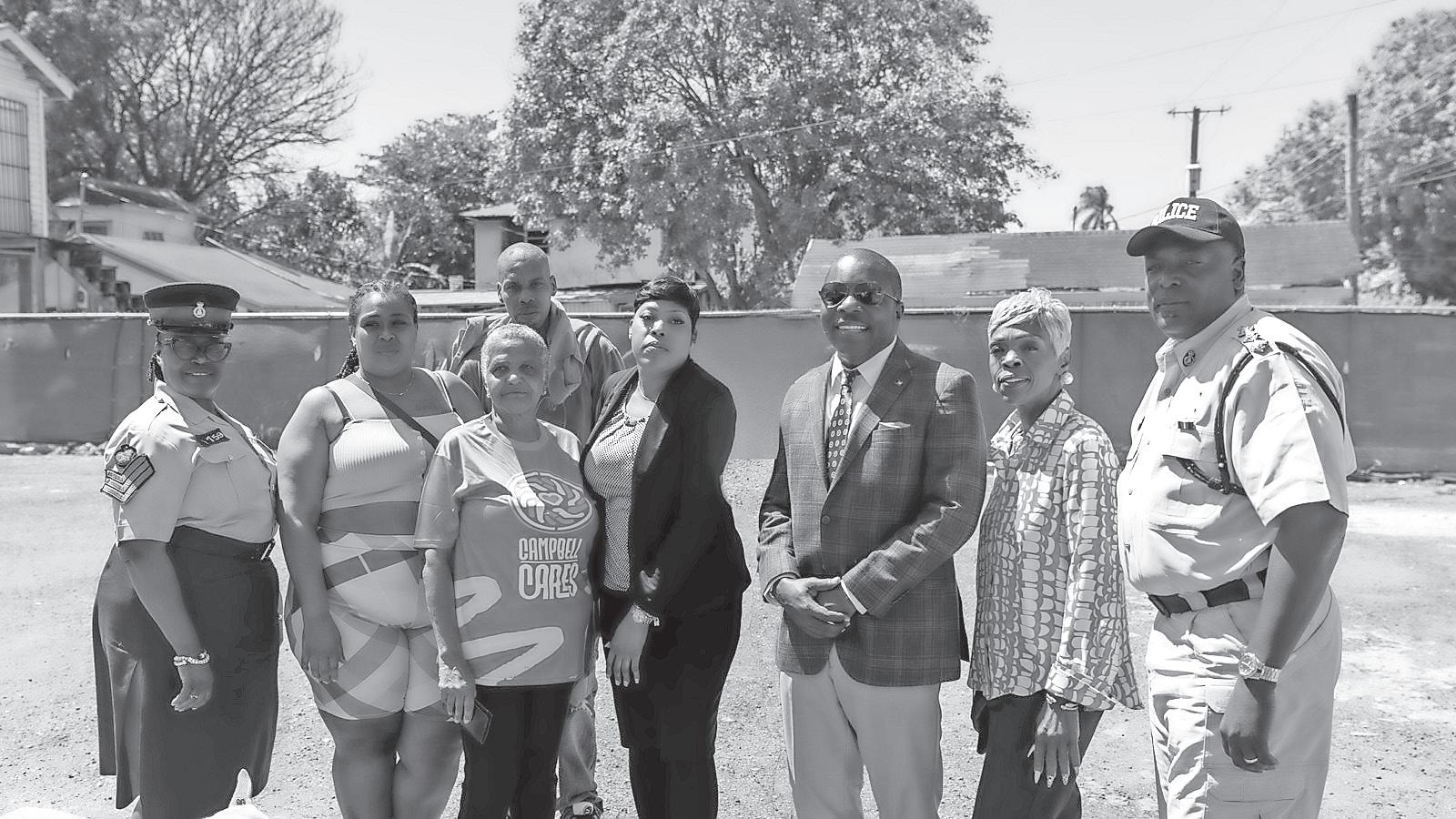
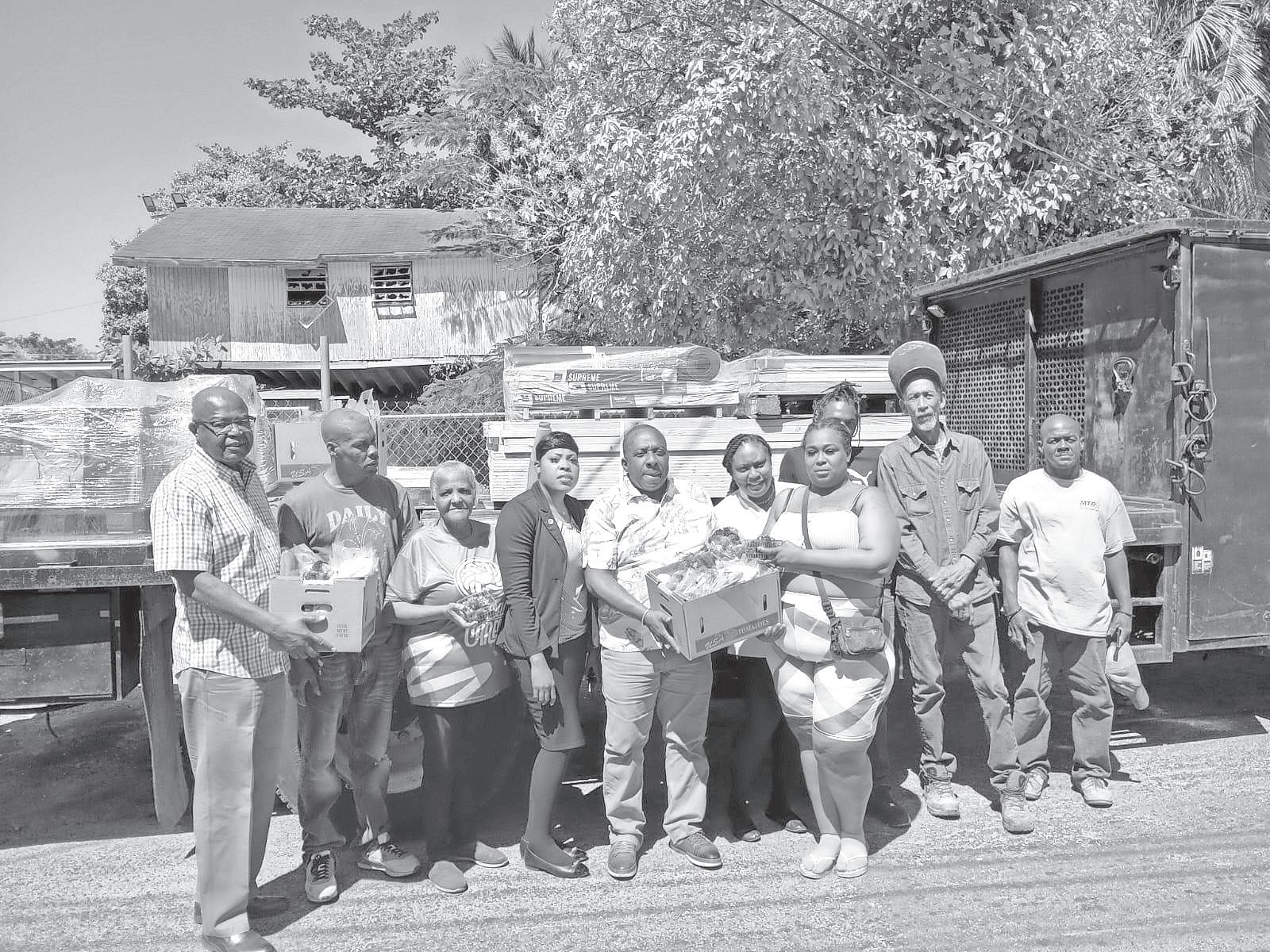
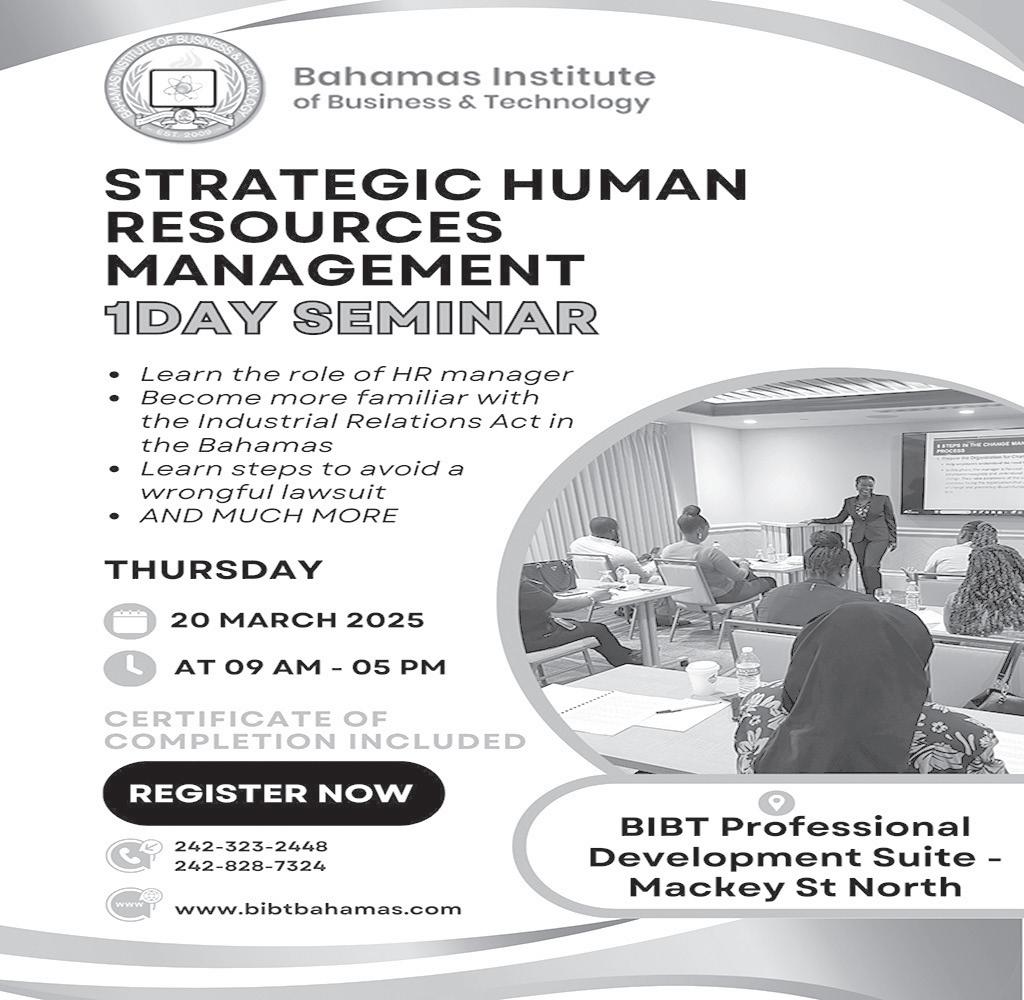
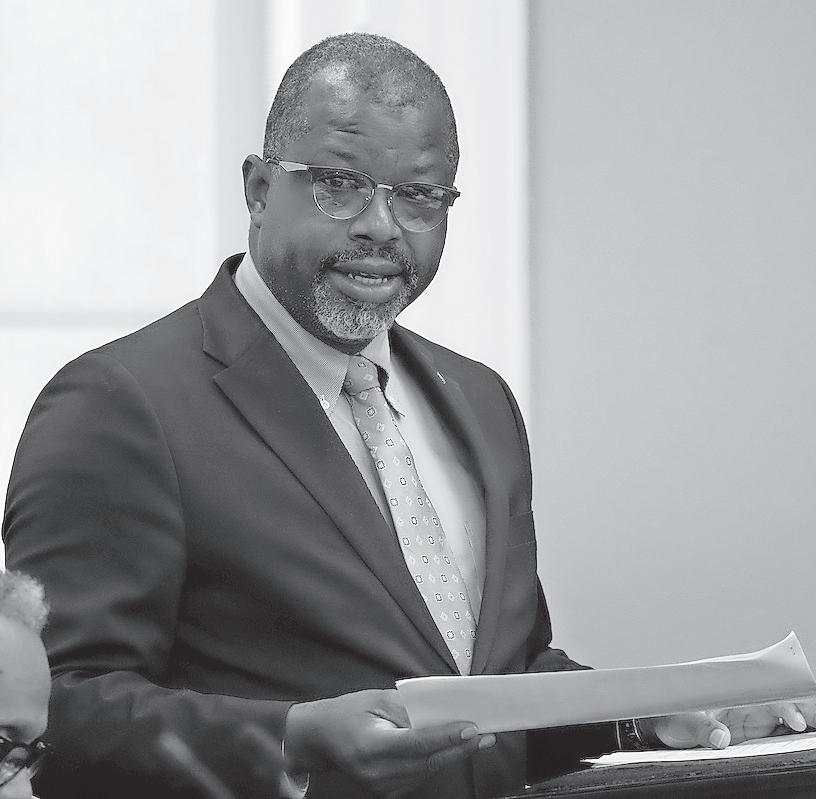
of 42-year-old Alvin Strachan, who was shot multiple times at an FML web shop on East Street and Balfour Avenue.
According to trial testimony, Etienne visited the web shop twice before the shooting, asking for change. On his third visit, he requested to use the bathroom. Moments later, gunshots rang out, and a security guard saw Etienne accost Strachan — a disabled man — and fire multiple shots.
During sentencing, Justice Williams described the murder as “cold and calculated,” stating that Etienne had visited the store under false pretenses to confirm
Strachan’s presence and even “test-fired” his gun in the bathroom before carrying out the attack.
Etienne, who had no previous convictions, faced a potential 60-year sentence but was given 57 years and 10 months, with time served on remand deducted. The sentence aligned with past appellate court rulings in similar premeditated killings.
However, the Court of Appeal overturned the conviction after finding that Etienne had been denied a fair trial. During case management, he requested a copy of his case file, but both the prosecution and his lawyer refused to provide witness statements. He reportedly received them
only after firing his lawyer. Justice Williams initially granted Etienne time to secure new legal representation but later reversed his decision and forced him to represent himself. The judge allegedly accused him of “manipulating the court.”
Etienne’s public defender, James Thompson, argued that hearsay evidence had also been admitted during the trial, further undermining its fairness.
The Court of Appeal ruled that a miscarriage of justice had occurred and ordered a retrial before the Supreme Court at a later date.
Destiny McKinney-Morley served as the prosecutor in the appeal.

POLITICAL parties, like other institutions, are often fractious, disputatious, ever striving for greater unity. Differences and divisions in parties are normal. Members disagree along ideological, policy, and organisational grounds.
Other sources of constant disagreement revolve around personalities and leadership. Human beings enjoy power. We expend tremendous energy and resources on attaining, accumulating, and holding power and office. The desire and sometimes lust for power give rise to fissures and open wounds.
Parties have mechanisms and conventions for healing wounds and binding supporters together in pursuit of election to office and the advancement of broader political and national goals.
Both the Progressive Liberal Party (PLP) and the Free National Movement (FNM) have histories of division and disunity. These divisions are driven mostly by leadership styles and personalities. While there may be policy differences within the major parties, there are no major ideological divides. Today, the major parties are generally united heading into the next general election. Though there are some divisions with the governing party, including jockeying for future position, including to succeed Leader Philip ‘Brave’. Davis, if the party loses the upcoming national contest, the party is generally united.
The Prime Minister has no challengers to his leadership and will lead the party into political battle, attempting to secure a second consecutive term, which will be a major feat given our now three decade history of throwing out incumbents after a single term.
Leader of the Opposition, Michael Pintard, will likewise lead the FNM into the next election.
Given the declining state of the economy, including the cost of living crisis, the repeated pratfalls and often outsized errors of the PLP, and the penchant of voters to throw the incumbents out, Mr Pintard has a very good chance of becoming prime minister.
In addition to holding the government accountable, strategizing, and finding the financial and other resources necessary to be financially competitive for the general election, he must also prepare for a transition to government.

This transition includes a workable manifesto and plans for how he will organise the Office of Prime Minister and his government. It is generally the case that voters tend to mostly dispense with the government of the day instead of voting in the opposition. Still, an opposition needs to appear credible and sufficiently united.
There is still much work the FNM and Mr Pintard need to do to prepare the party to mount an effective and well-resourced winning campaign. Like every leader who has become prime minister, there are areas in which Mr. Pintard needs to grow. He has strengths and limitations, of which he must be rigorously and unflinchingly honest with himself. The character he possesses will be tested and on display if he becomes head of government.
The best leaders understand their characters and rely on experienced advisors who help to mitigate their shortfalls and blind spots and enhance their strengths.
With a general election due within the next two years, the FNM is renewing itself. Mr Pintard has grown as a leader. The party is generally stable, and despite the need for greater unity on some fronts, the FNM is more united than it has been in previous periods.
The vast majority of FNMs within the party and in the general public have rallied around him as leader. When a party decides on its leader, it is the duty of party members to support that leader and to assist the party moving forward.
Though the FNM is mostly united, there is a perception within the party and the country that the FNM must present a more united front.
FNM chairman Dr Duane Sands, recently noted: “I know that
the leader, the deputy leader, and myself, we have worked aggressively at rebuilding the Free National Movement from a place that it was to a place that it is now…
“We met disaffected FNM’s who have come home. Would it be honest to say all of them have come home? No. Have we reached out? Yes we have, and we will continue to reach out. We realised that we are stronger with them than without.”
Dr Sands is to be congratulated for his work as chairman. Along with Mr Pintard, he has improved the party’s messaging. He has been aggressive in taking the proverbial fight to the PLP. His success may be measured by how much the PLP attacks him.
There are typically hurt feelings, divisions, and high emotions after a party loses a general election or if there is change of leader. How a party leader handles these divisions is a major test of leadership.
The proximate concern regarding unity in the FNM today, concerns one of the more contentious processes that every party leader faces, namely, candidate selection.
This is made all the more difficult for Mr Pintard, given that his predecessor, former Prime Minister Hubert Minnis, would like to run again for Killarney.
There are impassioned feelings and high emotions by those who support Dr. Minnis being afforded a nomination and those who utterly oppose any such nomination. The timely resolution of this question is vital for the further unity of the party in the minds of the general public.
Dr Minnis’s supporters and others within the party anxiously await the outcome. Mr Pintard and Dr Minnis are political rivals, who fought each other for the leadership. There is history and distrust between the two that may be managed but that will never disappear.
The party faithful within the country and the party want both sides and both men to put aside their egos sufficiently to do what is necessary for the FNM to win election.
The party is bigger than personalities and egos.
For greater perspective, FNMs might want to recall the history of division within the party, which was considerably more divided in relatively recent years and some years after its creation.
Have some FNMs forgotten the tempestuous

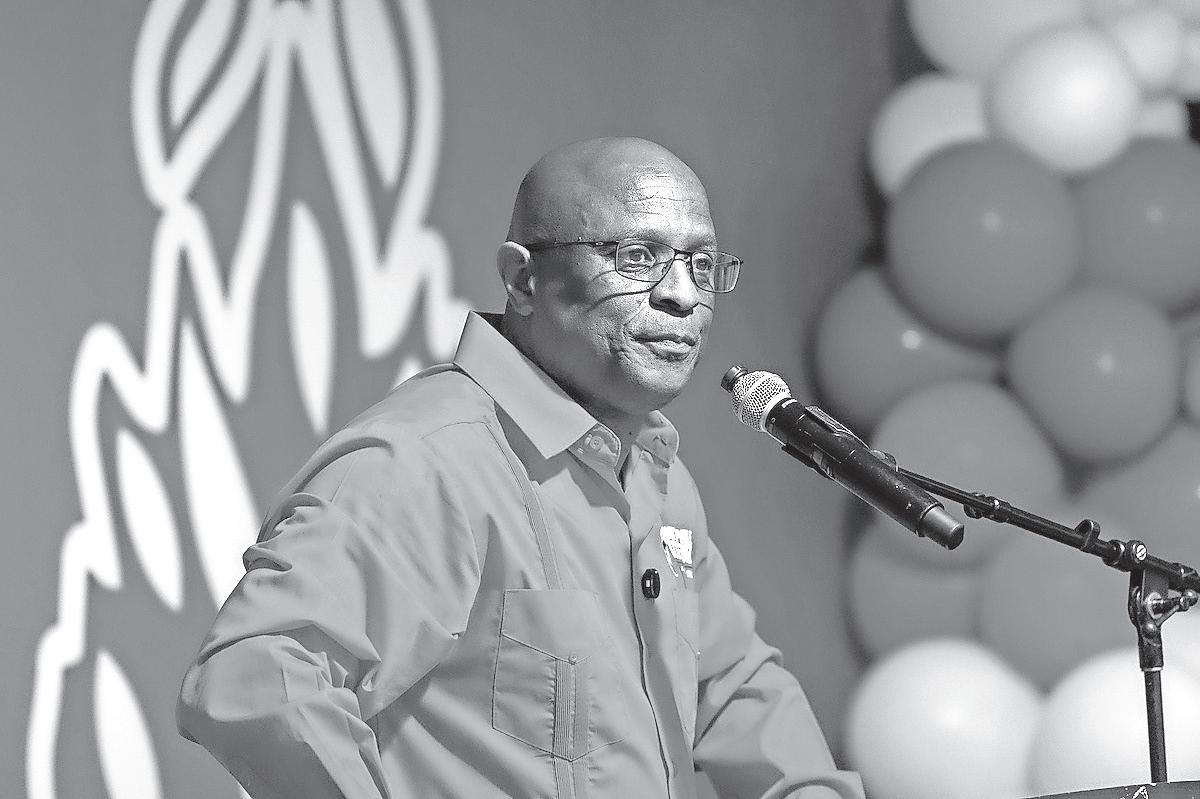
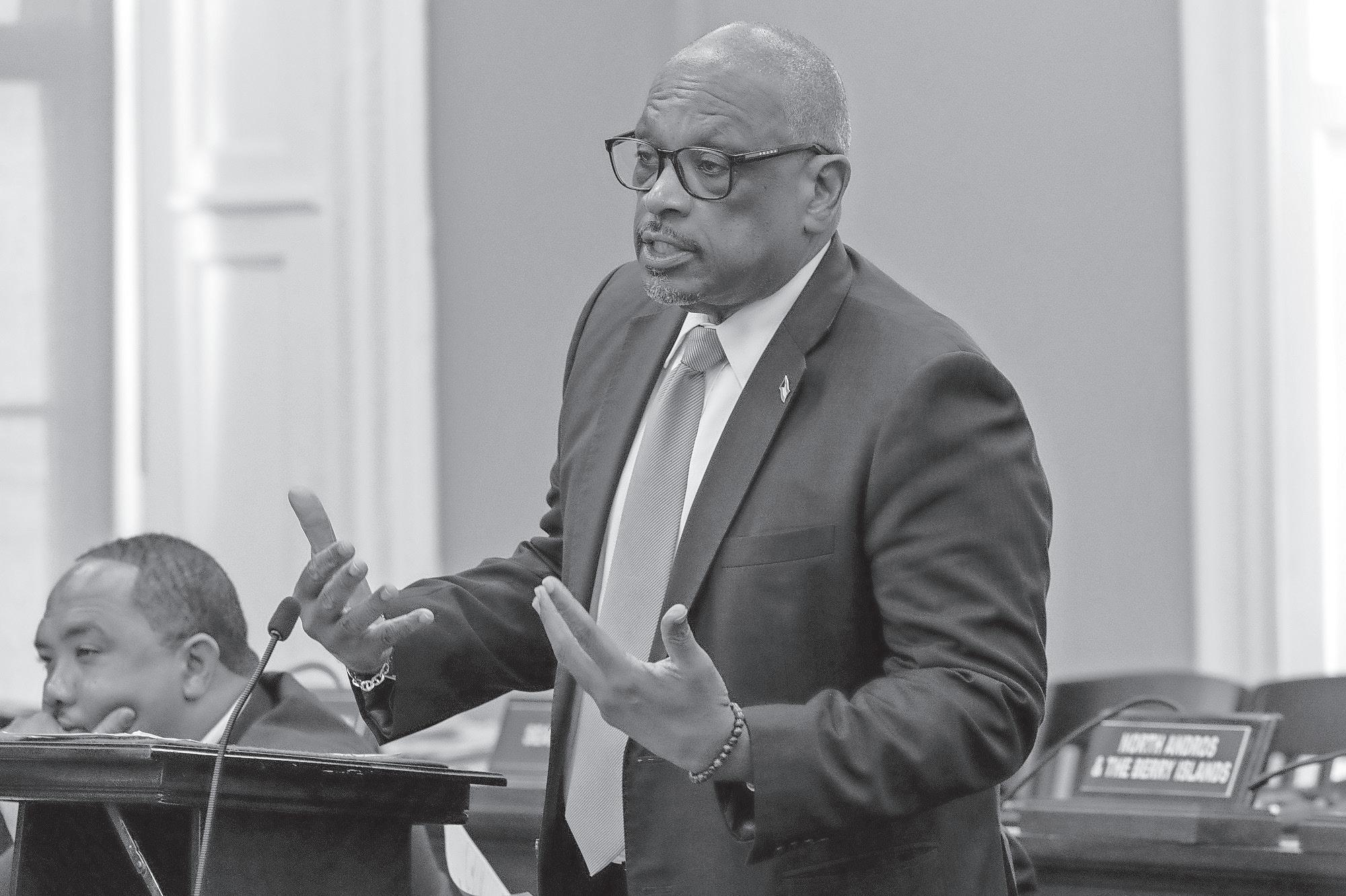
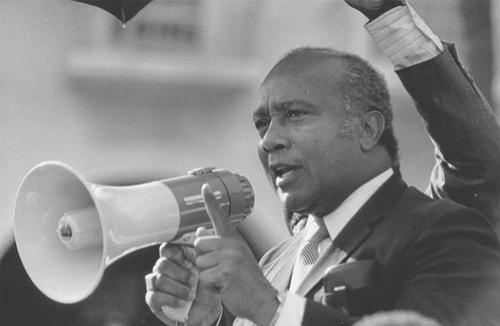
rivalry between Dr Minnis and Loretta ButlerTurner. Both were big personalities with varying strengths, as well as weaknesses and certain mindsets, which resulted in terrible and at times unnecessary political mistakes.
Dr Minnis’s leadership style often proved difficult for a quite a number of his parliamentary and other colleagues. This style was a source of considerable contention, which led to his ouster as Leader of the Opposition by Mrs ButlerTurner and several of her colleagues, more of which next week.
In the lead-up to the 1977 general election, party leader Cecil Wallace Whitfield succumbed to an autocratic impulse, unwilling to listen to advice
from his parliamentary colleagues, particularly FNM Members of Parliament who lost confidence in his leadership as Sir Cecil became increasingly non-collegial.
The breaking point was the selection of candidates. Sir Cecil was insistent on the selection of Tennyson Wells as the candidate for Long Island, despite the opposition of many of his party colleagues, and against the wishes of most of the Long Island Constituency Association.
Unable to abide Sir Cecil’s “my way or the highway” attitude, much of the core of the FNM left, forming the Bahamian Democratic Party (BDP). The 1977 results were disastrous for the Opposition. The BDP
faction became the Official Opposition after the general election. After the 1977 imbroglio, several years of reunification talks led to a reconstituted party. In a meeting at his home, Sir Cecil stepped aside from leadership in favor of Sir Kendal Isaacs. The disunity in the FNM today is considerably milder than times past. However, the causes of disunity should not be allowed to fester. Such disunity may cause the party harm, including votes and a failure to attract funding from various sources. Still, fixing what mostly divides the party today is relatively easier than fixing much that caused disunity in the past.

WHAT motivates Donald Trump? On available evidence, it’s overwhelmingly his own self-interest. But that manifests itself in several ways.
Loyalty, retribution and greed are often cited as side-effects of his overpowering narcissistic sense of his own importance.
It was abundantly clear months ago that a key qualification for service in his new, second administration would be unwavering loyalty to him. This is evident not only in the several stunningly unqualified candidates he offered for leading federal jobs in Washington. It also manifests itself in the public fealty paid to him by the many qualified and well-regarded nominees he has selected. Senior members of his national security team are only one example of this phenomenon.
Retribution is apparent on an almost daily basis. One facet of this is Trump’s unprecedented revocation of Secret Service protection for members of the previous Biden administration who were guilty of real or perceived disrespect for Trump.
Former Centers for Disease Control director Anthony Fauci and former chairman of the Joint Military Chiefs of Staff Mark Milley are just two notable examples. After (and even, discretely, before) Trump lost to Biden in 2020, both men were harshly critical of Trump’s whimsical, inconsistent and occasionally idiotic views on public health and national security. Remember his recommendation that people inject laundry bleach as an antidote for COVID-19?
Now, back in the White House, Trump has moved quickly to deliver his punishment. But Milley and Fauci not only lost their protective details – necessary, by the way, mostly due to Trump’s stirring up public outrage at their defiance of his policy and persona – but they were also stripped of their government security clearances.
Such an action can have severe personal economic consequences. For many former senior government officials, access to sensitive information remains a key qualification for two oftenlucrative post-government service endeavors. These are consulting for private business and the writing of memoirs, which both generally bring significant
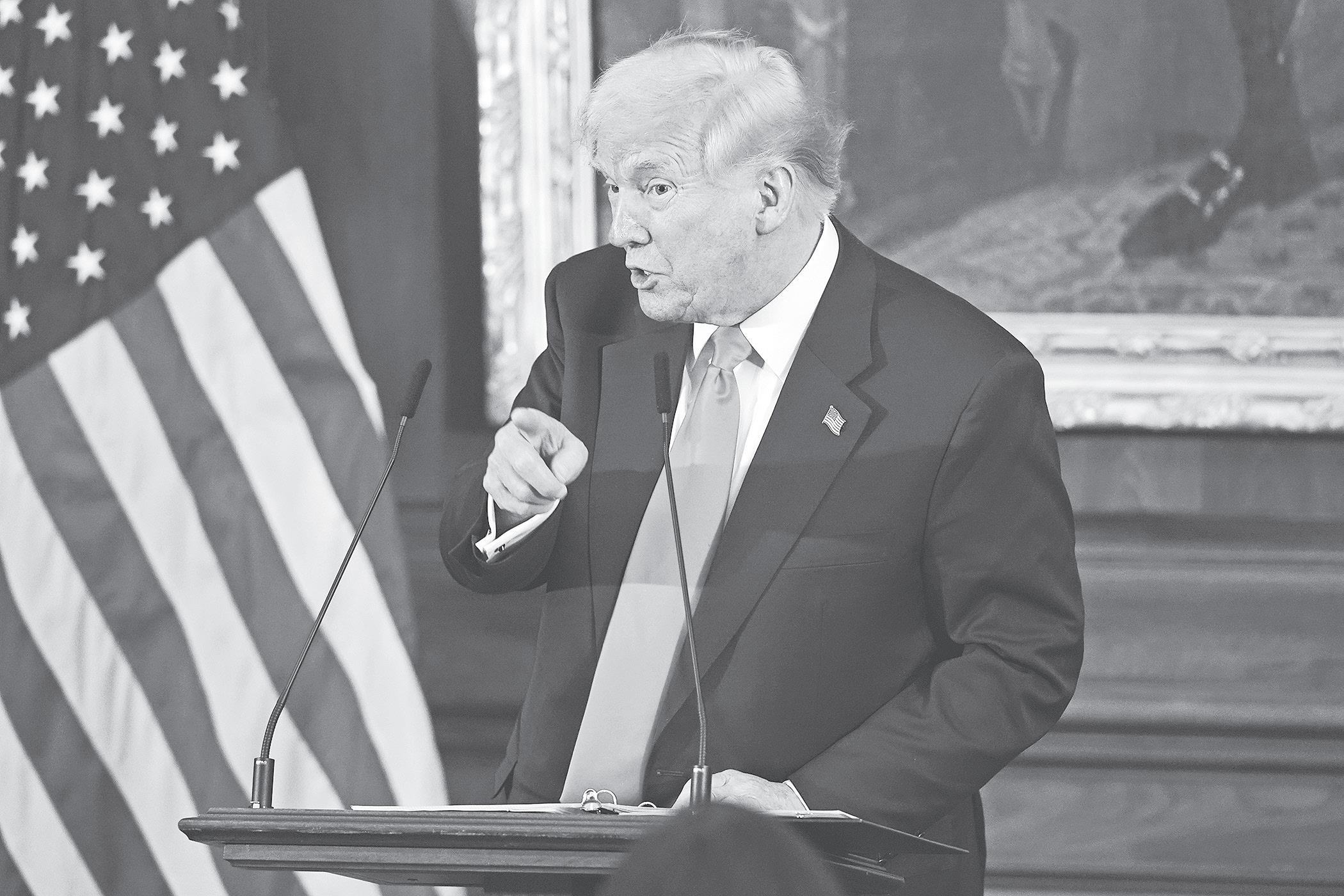

financial rewards. Among those being stripped of their security clearances last week were former Secretary of State Antony Blinken, Biden’s national security adviser Jake Sullivan, New York Attorney General Letitia James and Manhattan District Attorney Alvin Bragg. The latter two took leading roles in the principal non-federal criminal cases that were brought against Trump during the Biden administration.
Trump himself commented on his predecessor at a February conservative conference outside Washington. “I also revoked Joe Biden’s security clearances, the Biden crime family security clearances, and they’ll no longer be allowed to access state secrets while selling themselves all around the world. Oh, well. No, these were bad
people.”
Greed is actually less apparent in this administration than in Trump’s first term as president. Then, he was credibly accused of pushing governmentrelated business to his Washington DC hotel and to several of his golf courses. His influence likely contributed to the multibillion-dollar investment by Middle East oil oligarchs in a hedge fund established by his son in law.
Overall, though, the defining characteristic of this second Trump administration has been retribution. This man, who has spent the past 40 years seeking (and achieving) publicity, prominence and notoriety, remains phenomenally and inexplicably thin-skinned.
It is often speculated that Trump finally decided to run for president after he felt then-president Barack

The John F Kennedy Center for the Performing Arts, spectacularly situated with gorgeous views over the sweep of the Potomac River below, has become another sore point for Trump. He has openly expressed disdain for the “elites” who have long populated its Board of Directors and decided whom to reward with the centre’s annual awards –somewhat presumptuously labelled “The Kennedy Center Honors”.
Almost immediately upon moving back into the Oval Office, Trump fired the centre’s director and its board, replacing them with loyalists and installing himself as Board chair.
In addition to its honours, the Kennedy Center also hosts symphonic and a wide variety of other musical concerts and events; stage plays, and many other artistic performances.
Since Trump’s purge of the organisation’s leadership, some artists and companies who had been booked to perform there have already backed out.
The announcement of the annual honours, normally made earlier in the fall, has annually been televised just before Christmas.
Trump has mused that he may host them himself this year. Lists of now ‘politically correct’ laureates are already circulating.
Petty and not so petty revenge and retribution have informed many of Trump’s actions as president.
But what about tariffs?
Where do they fit into this paradigm of greed, retribution and loyalty?
Given that most economists seem to feel that Trump’s obsession with tariffs is pushing the world economy toward a largely gratuitous recession, where is this dangerous and
potentially destructive fascination coming from?
Tariffs are taxes imposed by the government of a country on imports. They are generally enacted in order to protect or stimulate the growth of key sectors of that nation’s economy.
The French government, for example, for decades applied tariffs on many imported agricultural goods in order to protect its farming sector from inexpensive imported foodstuffs – much of it from the US and Canada.
And at the dawn of the American industrial age, US presidents did apply tariffs on certain imports to protect nascent industries.
That was well over a century ago.
Trump claims he is imposing tariffs now, notably on largest American trade partners China, Canada and Mexico, to stimulate a rebirth of the US industrial sector. Pundits mock him, noting that the age of American heavy manufacturing has long past, and point instead to high-tech generally and artificial intelligence in particular as more likely to impel American economic growth and prosperity going forward.
Trump himself is now acknowledging that his protectionist policies will likely cause a broad recession. They will likely nourish persistent inflation. The millions of Trump voters who believed his promises to wipe out inflation will be disappointed. Will they also be disillusioned?
There are already reports of “buyers’ remorse” from some Trump loyal voters whose economic prospects are cratering after his tariff decisions.
But how does his principal foreign policy lieutenant justify them?
Here’s a lengthy exposition by Secretary of State Marco Rubio to reporters recently:
“So, let me explain on the tariffs. This is important for everybody to understand. This keeps being characterised as a hostile move against our allies. These are global tariffs on steel, on aluminum, on autos, on semiconductors eventually.
But what this administration has also discussed is a global reciprocal tariff regime. Understand what that means. That means basically whatever some country charges us, that’s what we’re going to charge them.
The President has made very clear that he wants to reset the baseline of international trade, which he believes is unfair to the United States. This is not meant as a hostile move against Japan or Germany or anybody else. This is about balancing and fairness in trade.
And once that general baseline is reset, then you can enter into bilateral negotiations with individual countries about changes that can be made to our trade, our bilateral trade, so that it’s fair for both sides. That’s his goal. In his first administration, the President did tariffs as well. What he was disturbed by in hindsight is the fact that they included a bunch of exemptions that basically made them meaningless. And so, what he wants to get back to is basically fairness in trade. It’s as simple as that.
“And we want to charge other countries what they charge us. There are industries that are critical to the United States and to our domestic security and our future. And he’s identified them: steel, aluminum, semiconductors, automobiles. These are things that we believe are in our interest to have a domestic capacity, and we have to protect these industries from what we feel is subsidisation and unfair competition from abroad. Take the European Union as an example. The EU has a GDP basically comparable to that of the United States. Their economy is similar to ours. These are not developing countries; these are developed countries. And yet they have a significant trade surplus with the United States even though our economies are pretty much the same. These are not low-wage countries. That’s a problem. All the President is saying is we need to equalise treatment.”
A TOTAL of $75,000 in funding was given to women-led businesses at last week’s Women’s Entrepreneurship Initiative event at Atlantis.
The Therapy Learning Centre was presented with $25,000 for its approach to special education and developmental support, while app Slipe’Marina was presented $20,000. Funding of $15,000 was given to Junkanoo Jitney. Seven runners-up received $2,000 each.
In addition, a student from the Therapy Learning Centre was presented with a $5,000 scholarship. Krystal Clarke was recognised for being a “stellar” student at the centre. The event was hosted by the Fox Foundation, and included Shark Tank winner Dr Bobbi Peterson as the keynote speaker, as well as a panel discussion led by Genea Noel. The event was held on March 13 in the grand ballroom of Atlantis.
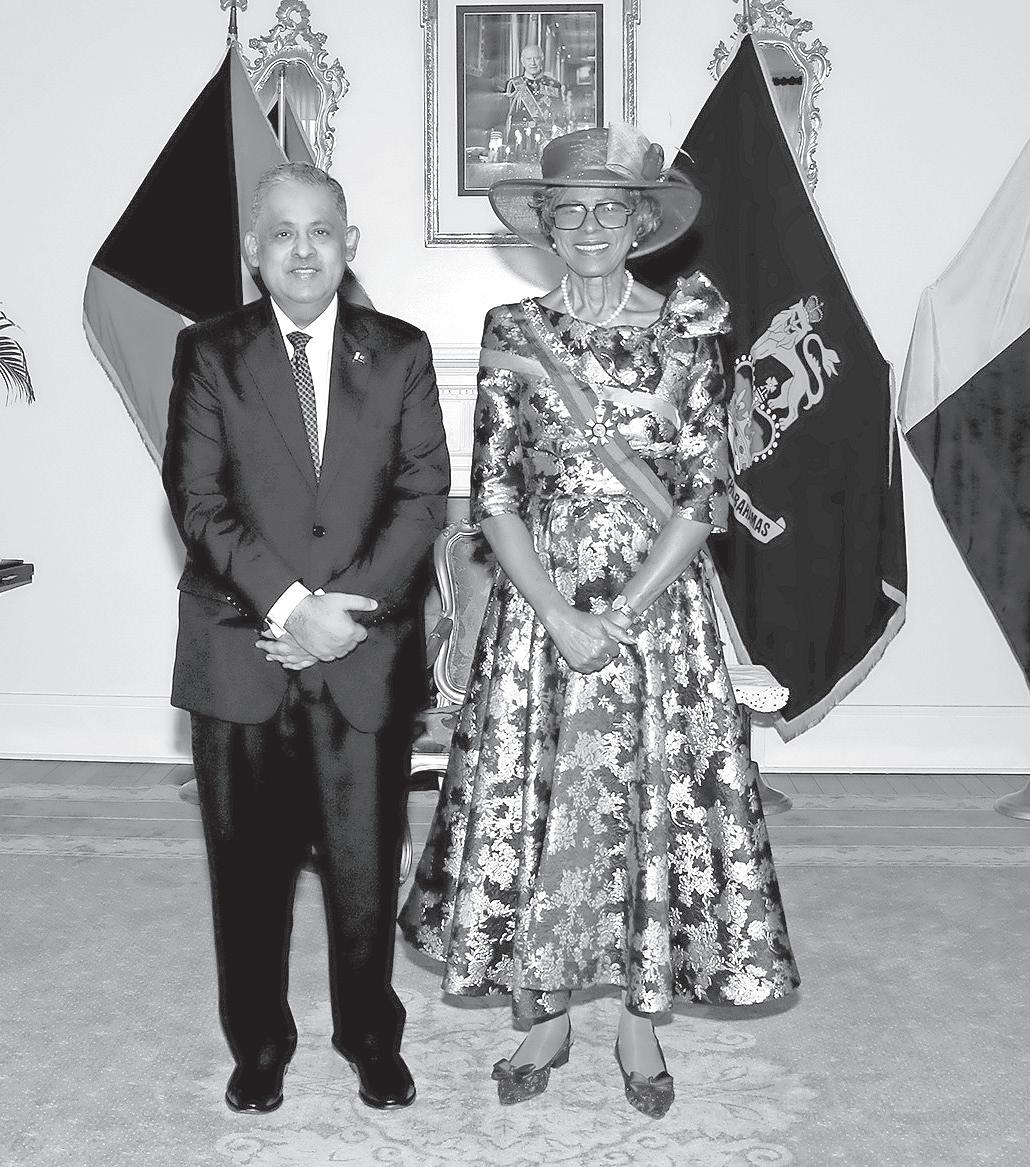
GOVERNOR General Dame Cynthia ‘Mother’ Pratt, ON, GCMG received credentials from Rizwan Saeed Sheikh, Non-Resident High Commissioner-Designate of The Islamic Republic of Pakistan to the Commonwealth of The Bahamas, during a Letter of Credence Presentation in the Drawing Room at Government House, Mt Fitzwilliam on Monday.
Photos: Letisha Henderson/AP

GOVERNOR General Dame Cynthia ‘Mother’ Pratt accepted Letters of Credence from Cecil Toendepi Chinenere, Non-Resident Ambassador-Designate of the Republic of Zimbabwe to the Commonwealth to The Bahamas, during a ceremony at Government House on March 11, 2025. Photos: Letisha Henderson/AP

On Saturday, March 22, 2025, Temple Christian School will hold its Entrance Examination for students entering grades 7, 8, 9 and 10.
TIME: 9:00 a.m. to 12:00 p.m.
LOCATION:
High School Campus, Shirley Street
Application forms are available at the High School Office and should be completed and returned to the school by Friday, March 21, 2025. The application fee is twenty-five dollars ($25).
For further information, please call telephone number: 394-4481/394-4484.
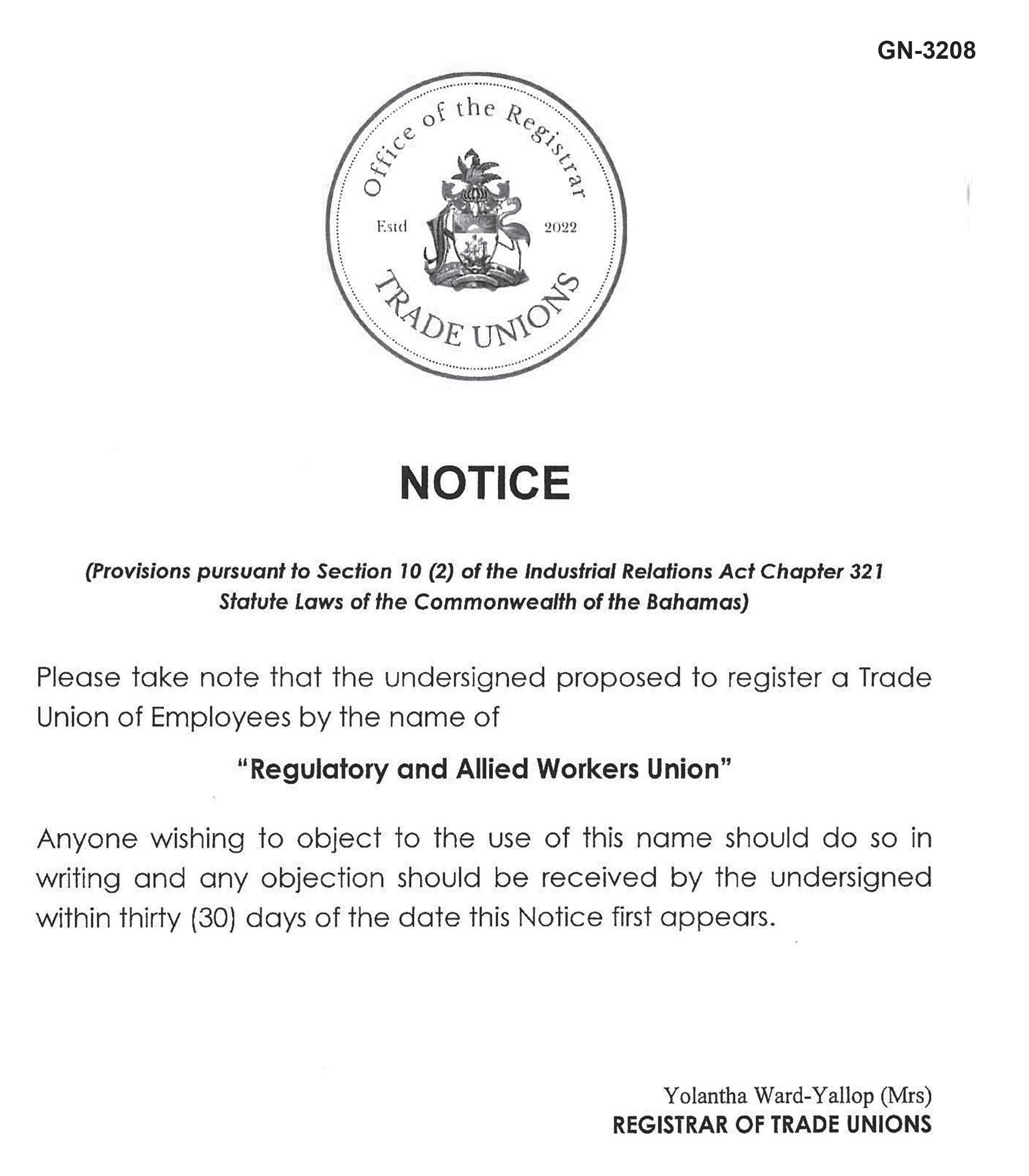
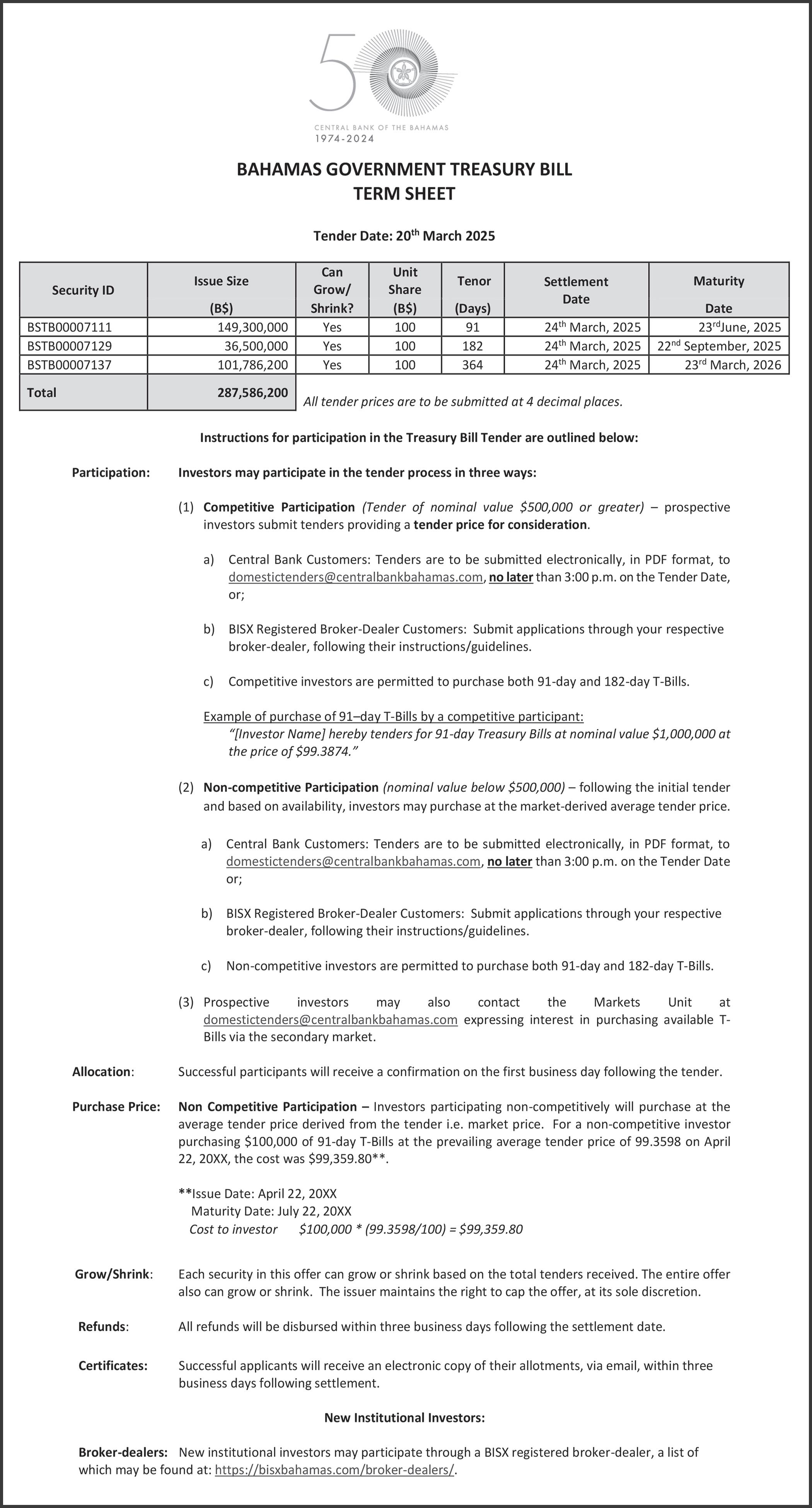
By PAVEL BAILEY Tribune Staff Reporter pbailey@tribunemedia.net
A COUPLE was granted bail after being accused of assaulting each other with firearms last weekend.
Senior Magistrate Shaka Serville arraigned Marnico Hanna, 34, and Krysna Kemp, 27, on charges of assault with a deadly instrument.
Hanna faced an additional charge of damage. He allegedly assaulted Kemp with a black Glock 45 9mm pistol and damaged the rear windshield of her blue 2016 Chevrolet Malibu on March 15 in New Providence. The damage to the car was estimated at $315.
Kemp, in turn, allegedly assaulted Hanna with a Smith & Wesson .22 rifle.
Both defendants pleaded not guilty. Their bail was set at $3,500 with one or two sureties. Under the terms of their bail, both must sign in at their local police station weekly. The matter was adjourned to Friday for a trial date to be set.
Inspector Cordero Farrington served as the prosecutor.
By PAVEL BAILEY Tribune Staff Reporter pbailey@tribunemedia.net
A MAN was granted bail after being accused of breaking into a police station in Andros last month and stealing a scooter. The same defendant is also accused of breaching probation on a prior charge.
Chief Magistrate Roberto Reckley arraigned Jimmy Johnson, 18, on charges
of shopbreaking, stealing, receiving, and three counts of breaching bail.
Prosecutors allege that Johnson broke into the Fresh Creek Police Station and stole a black Yamaha Crypton scooter between 7am on February 4 and 1pm on February 5. While on probation for a previous offence, Johnson allegedly failed to behave well on December 17 2024. He is also accused of failing to complete 100 hours
of community service by December 18 2024 and failing to repay Forrest Engle $400 by January 31.
The defendant pleaded not guilty to all charges.
Johnson was granted $5,000 bail with one or two sureties. Under the terms of his bail, he must sign in at the Fresh Creek Police Station every Friday by 6pm.
His trial is scheduled to begin in Andros on May 26.
Inspector Deon Barr served as the prosecutor.
By PAVEL BAILEY
Tribune Staff Reporter pbailey@tribunemedia.net
A MAN was sentenced yesterday to two years in prison after admitting to having a gun in his home in Elizabeth Estates last week.
Magistrate Lennox Coleby arraigned Trevor Morris Jr, 25, on charges of possession of an unlicenced firearm and possession of ammunition.
Morris Jr was arraigned
alongside Trevor Morris Sr, 52, Karen Morris, 53, Tiara Morris, 23, and Brandon Miller, 29. During a search of the residence, police found a black Glock 19 pistol and ten rounds of 9mm ammunition in a clear plastic bin in Morris Jr’s bedroom. An additional round of ammunition was discovered in a dresser drawer. Morris Jr was the only defendant to plead guilty, accepting full responsibility for the weapon.
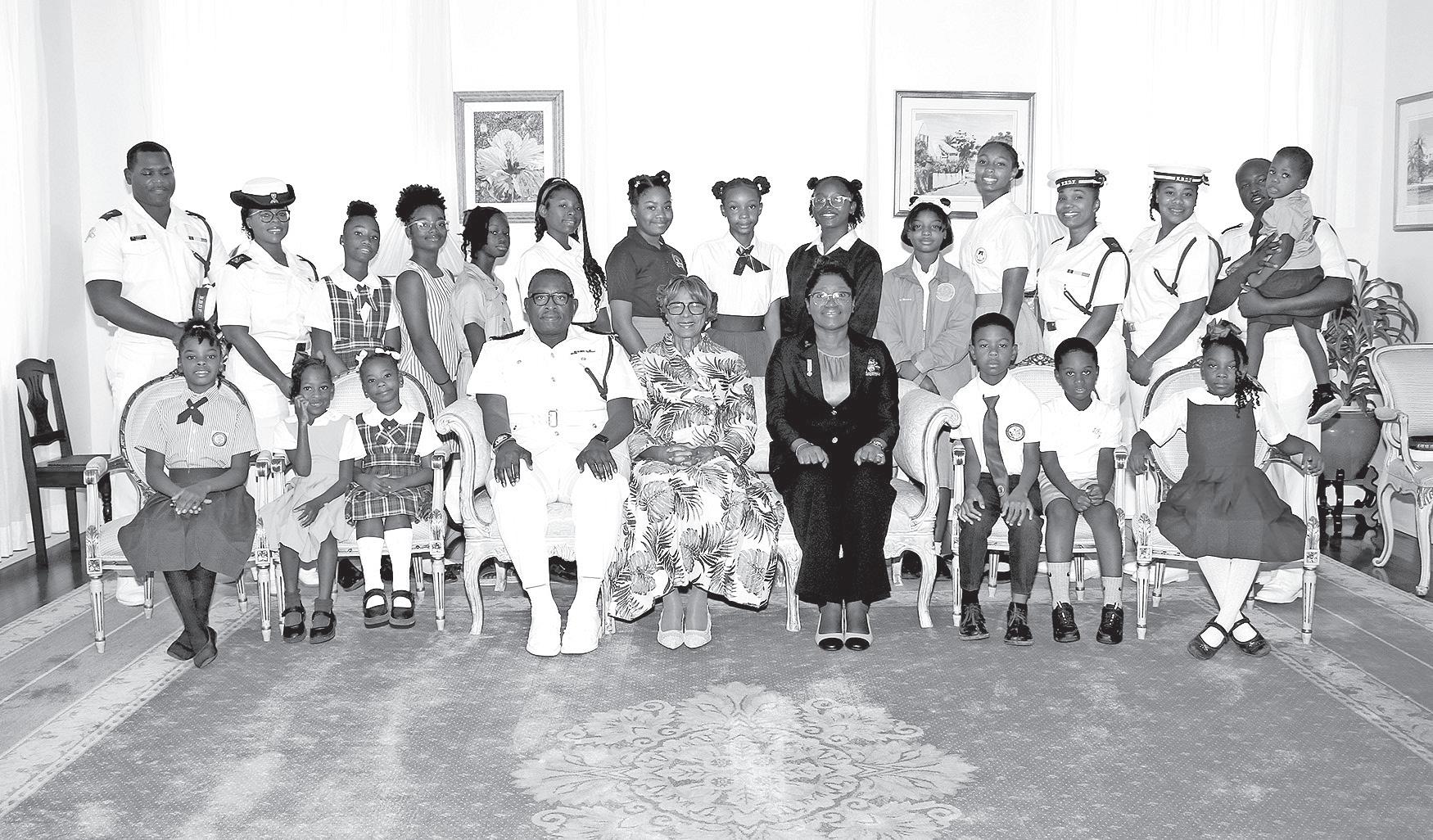
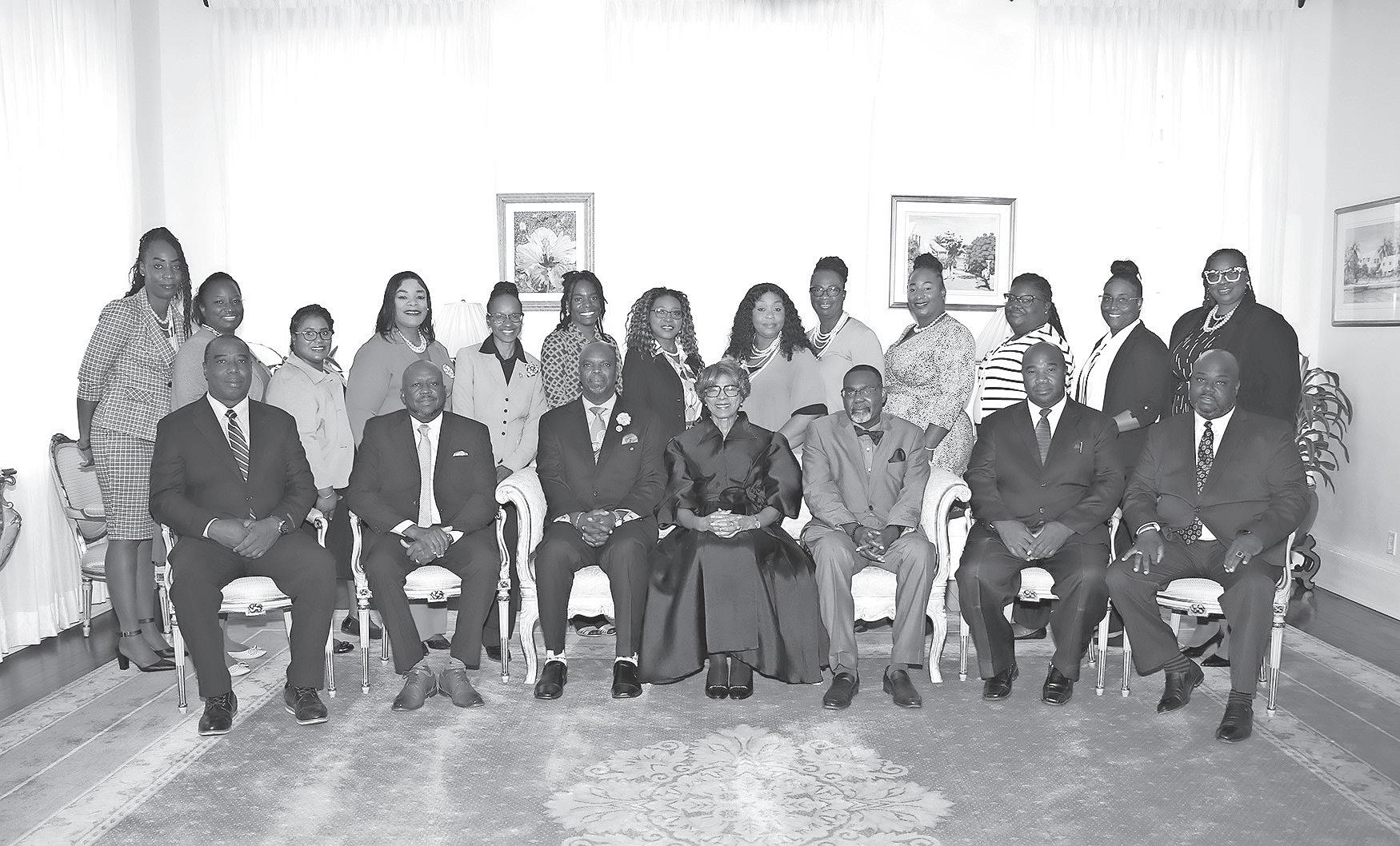
Following his admission and the not-guilty pleas of the other four defendants, the charges against them were withdrawn.
Morris Jr was sentenced to two years in prison and ordered to pay a $5,000 fine or face an additional year in custody. Before being taken into remand, he was allowed a moment with family members present in court.
Assistant Superintendent of Police Lincoln McKenzie served as the prosecutor.


By PENG JING Commercial attache of the
in The
Chinese Embassy
Bahamas
RECENTLY, the groundbreaking artificial intelligence model
DeepSeek, developed by Chinese engineers, has attracted widespread attention in the tech world. This high-performance, open-source AI model, developed at a cost of only $6m, not only rivals leading products like ChatGPT, which costed hundreds of millions of dollars, but also challenges the mainstream narrative that technological innovation must be exclusive and resourceintensive.
DeepSeek, as a representative success story, is a testament to China’s commitment to openness, collaboration, and shared progress—a philosophy deeply rooted in China’s cultural DNA and modern development strategies.
THE DEEPSEEK
PHENOMENON: A VIVID REFLECT ION of China’s TECHNOLOGI CAL INNOVAT ION
As a flagship achievement in China’s artificial intelligence sector, DeepSeek not only showcases the rapid advancement of Chinese technology but also embodies China’s dedication to openness, inclusiveness, and winwin cooperation.
One of DeepSeek’s defining features is its open-source. Unlike many closed-source AI models fueled by monopolised chips, exorbitant training costs and restrictive pricing, DeepSeek made its source codes and training data transparent. With millions of users worldwide and interested global developers synergistically refining its architecture, including global tech giants like NVIDIA and Amazon, DeepSeek decentralises AI capabilities, bridging gaps in the AI field and creating opportunities for Global South countries to access AI models and benefit from the AI era. It serves as an accelerator for human progress.
THE CONVERGEN CE OF AN CIENT WI SDOM AND MODERN INNOVAT ION
DeepSeek’s success embodies a philosophy rooted in Chinese ethos
throughout the nation’s development over thousands of years. That is: Progress thrives on openness and sharing.
This philosophy is embedded in China’s cultural DNA. The invention of paper and the movable type printing system in ancient China made the dissemination of knowledge economically feasible. The monopoly on knowledge collapsed, and ordinary people could more easily afford education and participate in the knowledge-making process. That ultimately gave rise to significant advancements in human civilization.
This tradition of openness continues to shape China’s modern contributions. From traditional infrastructure and industrial products to new energy vehicles, solar power, and lithium batteries, China has consistently leveraged technological advancements to create greater benefits for people worldwide.
DeepSeek, as an opensource AI platform, is the latest embodiment of this centuries-old philosophy, proving that progress flourishes when knowledge is shared. The wisdom of this philosophy has proven even truer when tested against opposing experiences. China’s painful lesson of falling behind while isolating itself from the world in the late Qing Dynasty (1636-1911) serves as a stark reminder that it is openness, not isolation, that fuels lasting growth.
Just as collaborative coding accelerates AI breakthroughs, global prosperity hinges on dismantling barriers rather than building walls. Protectionism, in tech or trade, is a self-defeating spiral.
While China embraces openness, some countries, driven by ideological bias and hegemonic thinking, have resorted to protectionist measures to suppress China’s technological progress. From restricting technology exports and sanctioning Chinese companies to smearing China’s technological advancements as “threats” and obstructing international tech cooperation, these actions not only violate

market principles and international rules but also reveal their true intent to contain China’s development. For instance, chip bans had been imposed and targeted at Chinese tech companies like Huawei and TikTok, taking national security as an excuse. However, these actions have backfired. As the Western saying goes, “What doesn’t kill you makes you stronger.” The sanctions have not stifled China’s technological progress; instead, they have spurred Chinese enterprises to double down on independent innovation and develop alternative solutions with less dependence on high-end chips, achieving breakthroughs in lowcost, high-performance technologies. The rise of Chinese drones, robotics, and DeepSeek exemplifies this resilience.
Recently, the US imposed additional tariffs on Chinese products. Trade barriers are also economic dead ends. Past statistics show that the cost of hiking tariffs is paid by manufacturing jobs, meanwhile, consumers are forced to pay more for fewer choices. The US imposition of 20 percent tariffs on Chinese
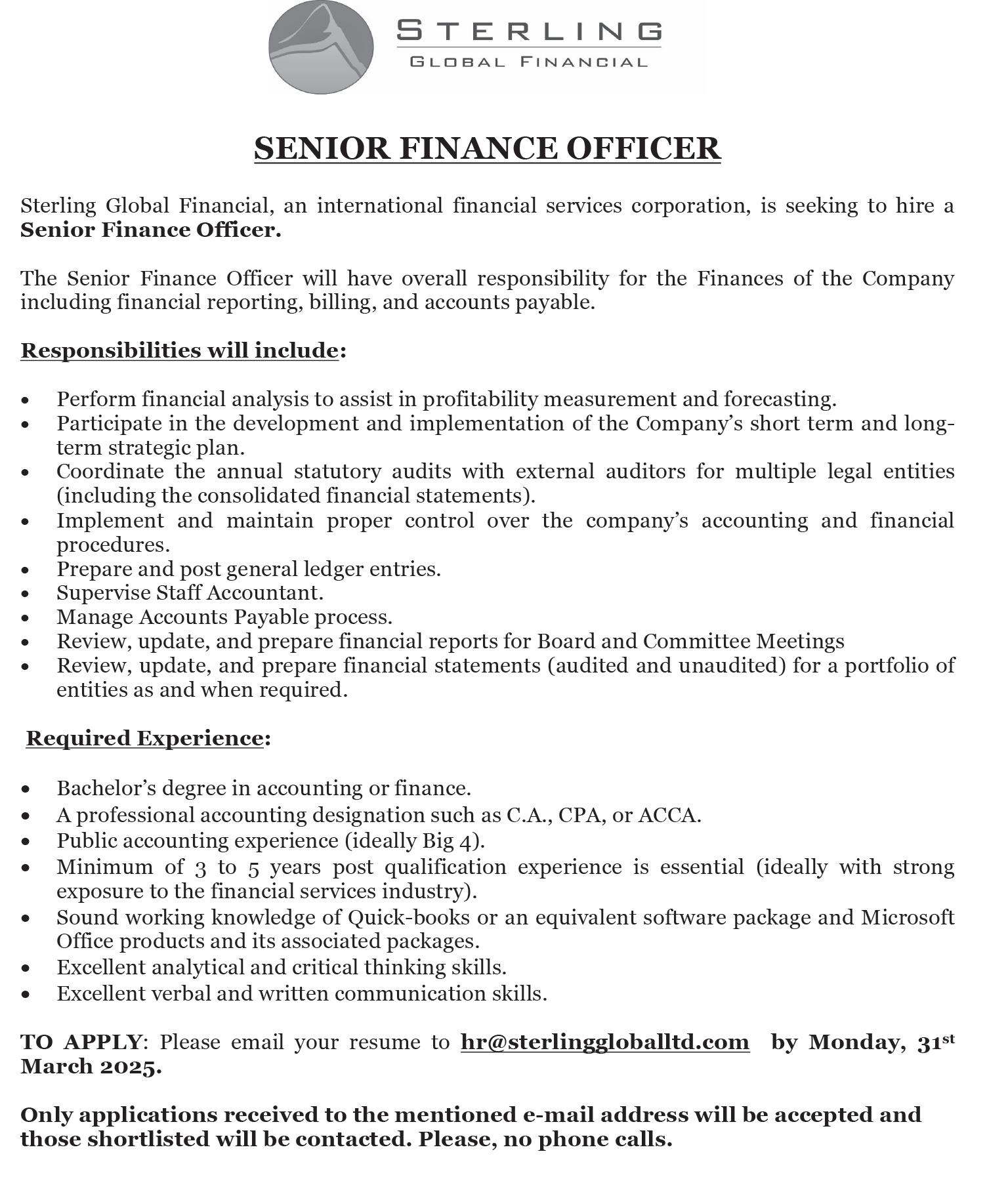
products on the basis of fentanyl is groundless and a typical act of protectionism, unilateralism and bullying. The global economy will also suffer, as the Organization for Economic Co-operation and Development warned that “rising trade tensions and further moves towards protectionism might disrupt supply chains, raise consumer prices and negatively impact growth” in 2025 and beyond. We are confident that, just as in the tech sector, no suppression can stop China’s progress.
Over the past four decades, China has risen to become a global technological powerhouse.
Building on this success, China is now embracing the world with even greater openness and seeking win-win cooperation through better collaboration. At the recent National People’s Congress, the Government Work Report outlined the direction for China’s technological development and progress. The report emphasized that China will continue to pursue an innovationdriven development strategy, increase investment in scientific research, tackle key core technologies, and accelerate the building of a strong technological nation. At the same time, China remains steadfast in expanding openness, deepening international technological cooperation, and sharing development opportunities with the world.
China firmly believes that technological development should serve the well-being of humanity. Whether it is addressing climate change, promoting energy transition, fostering digital economic growth, or building a more beautiful world, China is willing to contribute its wisdom and strength. As the global community faces challenges and uncertainties, the principles of openness, shared progress and mutual benefit championed by China can serve as a guiding light. The success of companies like DeepSeek further underscores the importance of minimising barriers and maximising cooperation. Ultimately, it is through these efforts that we will be able to build a more equitable, interconnected and prosperous world for all.

SEATTLE
Associated Press
CYBERTRUCKS set
ablaze. Bullets and Molotov cocktails aimed at Tesla showrooms.
Attacks on property carrying the logo of Elon Musk’s electric-car company are cropping up across the US and overseas. While no injuries have been reported, Tesla showrooms, vehicle lots, charging stations and privately owned cars have been targeted.
There’s been a clear uptick since President Donald Trump took office and empowered Musk to oversee a new Department of Government Efficiency that’s slashing government spending. Experts on domestic extremism say it’s impossible to know yet if the spate of incidents will balloon into a long-term pattern.
In Trump’s first term, his properties in New York, Washington and elsewhere became a natural place for protest. In the early days of his second term, Tesla is
filling that role. “Tesla is an easy target,” said Randy Blazak, a sociologist who studies political violence. “They’re rolling down our streets. They have dealerships in our neighbourhoods.”
Musk critics have organized dozens of peaceful demonstrations at Tesla dealerships and factories across North America and Europe. Some Tesla owners, including a US senator who feuded with Musk, have vowed to sell their vehicles.
But the attacks are keeping law enforcement busy.
Prosecutors in Colorado charged a woman last month in connection with attacks on Tesla dealerships, including Molotov cocktails thrown at vehicles and the words “Nazi cars” spray-painted on a building.
And federal agents in South Carolina last week arrested a man they say set fire to Tesla charging stations near Charleston.
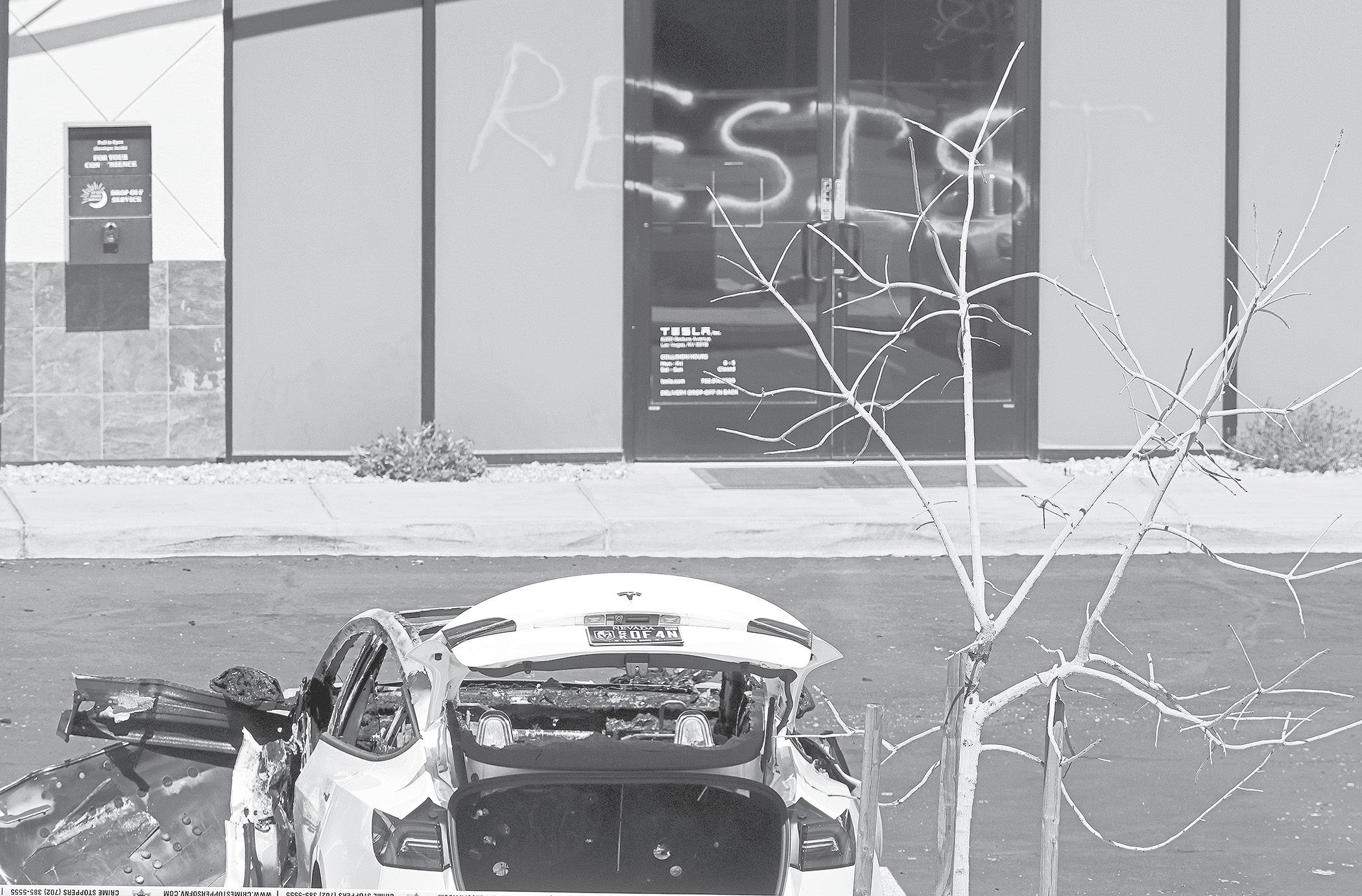
An agent from the Bureau of Alcohol, Tobacco, Firearms and Explosives wrote in an affidavit that authorities found writings
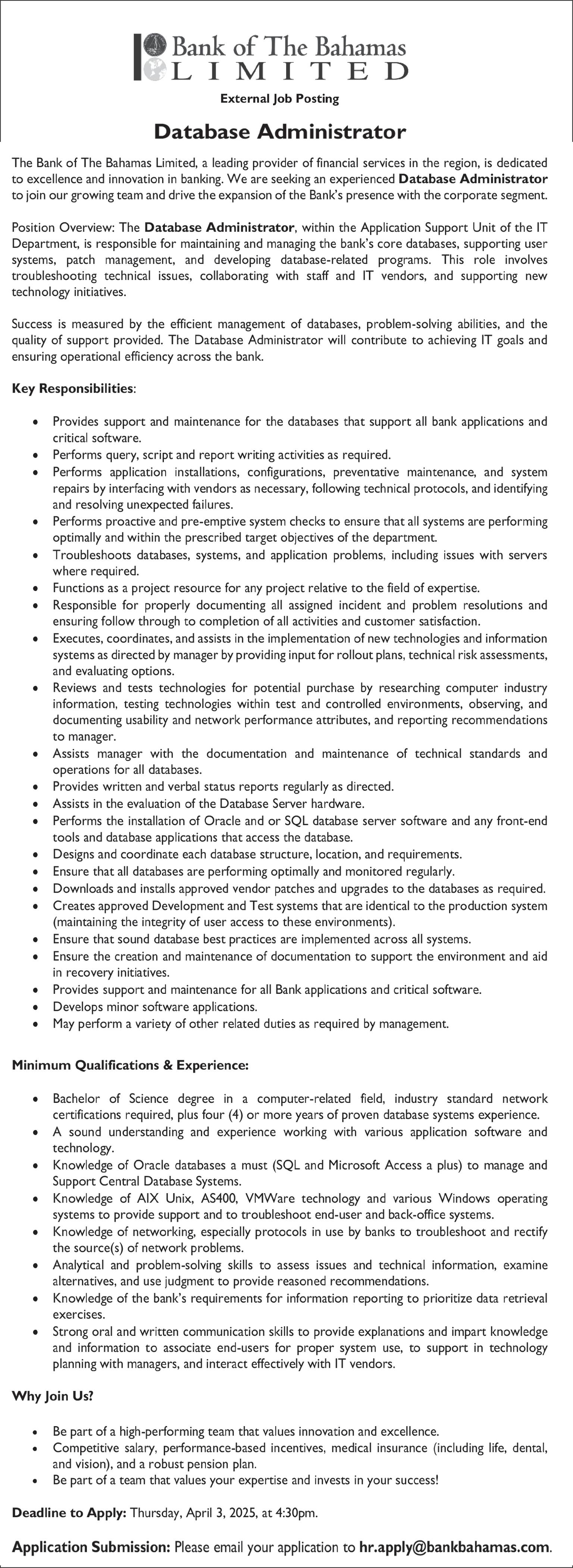
critical of the government and DOGE in his bedroom and wallet.
The statement made mention of sending a message based on these beliefs,” the agent wrote.
Some of the most prominent incidents have been reported in left-leaning cities in the Pacific Northwest, like Portland, Oregon, and Seattle, where anti-Trump and anti-Musk sentiment runs high.
An Oregon man faces charges after allegedly throwing several Molotov cocktails at a Tesla store in Salem, then returning another day and shooting out windows. In the Portland suburb of Tigard, more than a dozen bullets were fired at a Tesla showroom last week, damaging vehicles and windows, the second time in a week that the store was targeted.
Four Cybertrucks were set on fire in a Tesla lot in Seattle earlier this month. On Friday, witnesses reported a man poured gasoline on an unoccupied Tesla Model S and started a fire on a Seattle street.
In Las Vegas, several Tesla vehicles were set ablaze early Tuesday outside a Tesla service center where the word “resist” was also painted in red across the building’s front doors. Authorities said at least one person threw Molotov cocktails — crude bombs filled with gasoline or another flammable liquid — and fired several rounds from a weapon into the vehicles.
“Was this terrorism? Was it something else? It certainly has some of the hallmarks that we might think — the writing on the wall, potential political agenda, an act of violence,” Spencer Evans, the special agent in charge of the Las Vegas FBI office, said at a news conference. “None of those factors are lost on us.”
Tesla becomes a target for the left
Tesla was once the darling of the left. Helped to viability by a $465 million federal loan during the Obama administration, the company popularized electric vehicles and proved, despite their early reputation, that they didn’t have to be small, stodgy, underpowered and limited in range.
More recently, though, Musk has allied himself with the right. He bought
the social network Twitter, renamed it X and erased restrictions that had infuriated conservatives. He spent an estimated $250 million to boost Trump’s 2024 Republican campaign, becoming by far his biggest benefactor.
Musk continues to run Tesla — as well as X and the rocket manufacturer SpaceX — while also serving as Trump’s adviser. Tesla stock doubled in value in the weeks after Trump’s election but has since shed all those gains.
Trump gave a boost to the company when he turned the White House driveway into an electricvehicle showroom. He promoted the vehicles and said he would purchase an $80,000 Model S, eschewing his fierce past criticism of electric vehicles.
Tesla didn’t respond to a request for comment.
Musk briefly addressed the vandalism Monday during an appearance on Sen. Ted Cruz’s podcast, saying “at least some of it is organized and paid for” by “left-wing organizations in America, funded by left-wing billionaires, essentially.”
“This level of violence is insane and deeply wrong,” Musk wrote Tuesday on X, sharing a video of burning Teslas in Las Vegas.
Tesla just makes electric cars and has done nothing to deserve these evil attacks.”
The progressive group Indivisible, which published a guide for supporters to organize “Musk Or Us” protests around the country, said in a statement that all of its guidance is publicly available and “it explicitly encourages peaceful protest and condemns any acts of violence or vandalism.”
Some Tesla owners have resorted to cheeky bumper stickers to distance themselves from their vehicle’s new stigma and perhaps deter wouldbe vandals. They say things like “I bought this before we knew Elon was crazy” or “I just wanted an electric car. Sorry guys.”
Prices for used Cybertrucks, Tesla’s most distinctive product, have dropped nearly 8% since Trump took office, according to CarGurus, which aggregates used-car vehicle listings. The market as a whole remained steady over the period.
The White House vows a
The White House has thrown its weight behind Musk, the highest-profile member of Trump’s administration and a key donor to committees promoting Trump’s political interests. Trump has said Tesla vandalism amounts to “domestic terror,” and Trump has threatened retribution, warning that those who target the company are “going to go through hell.”
Attorney General Pam Bondi said she’d opened an investigation “to see how is this being funded, who is behind this.”
“If you’re going to touch a Tesla, go to a dealership, do anything, you better watch out because we’re coming after you,” Bondi said Friday on Fox Business Network. In a statement Tuesday, she vowed to “continue investigations that impose severe consequences,” including for “those operating behind the scenes to coordinate and fund these crimes.”
Colin Clarke, a senior research fellow at the Soufan Center, said leftwing political violence tends to target property rather than people. He views the rise of neo-Nazi groups as a bigger security threat at this point.
“It’s not the type of act that I would prioritise,” Clarke said.
“Not right now compared to all the other threats that are out there.”
Theresa Ramsdell is the president of the Tesla Owners of Washington state, a club for Tesla enthusiasts, and she and her husband own three of them.
“Hate on Elon and Trump all you want — that’s fine and dandy, it’s your choice,” she said.
“It doesn’t justify ruining somebody’s property, vandalizing it, destroying it, setting it on fire. There’s other ways to get your voice heard that’s more effective.”
Someone recently slapped a “no Elon” sticker on the tailgate of her Cybertruck, but she said she doesn’t intend to stop driving her Teslas. Other club members have taken a similar view, she said.
“I love my car. It’s the safest car,” Ramsdell said.
“I’m not going to let somebody else judge me for the car I drive.”



